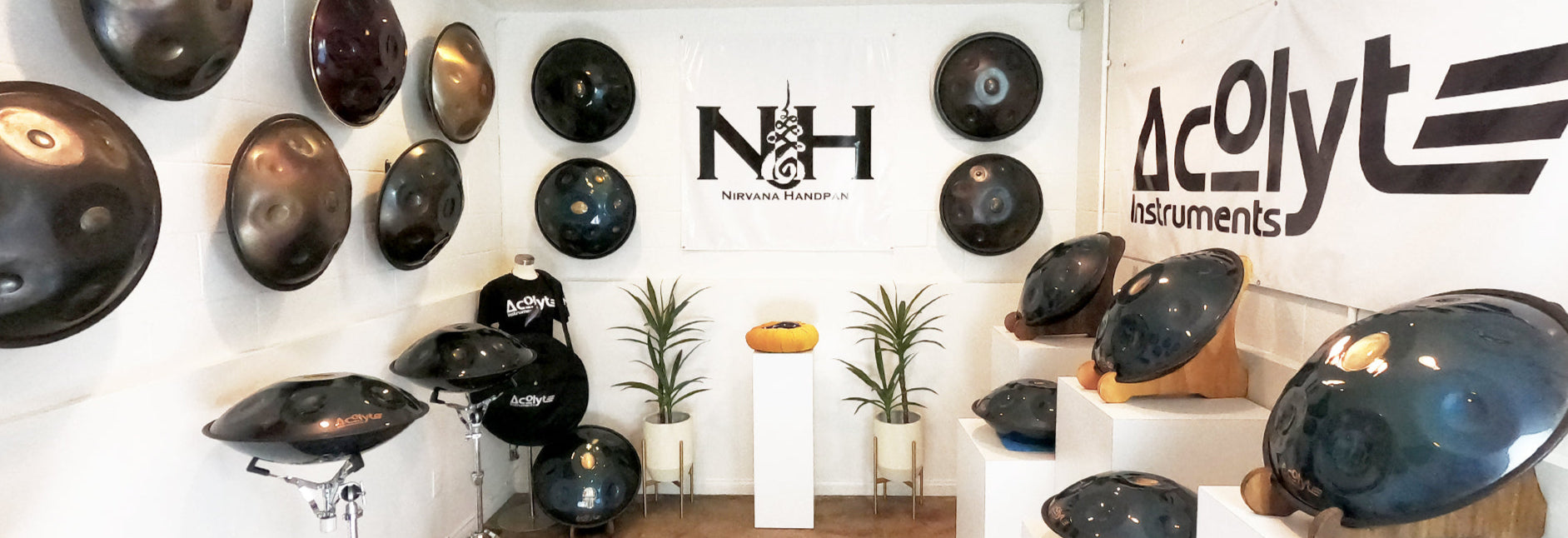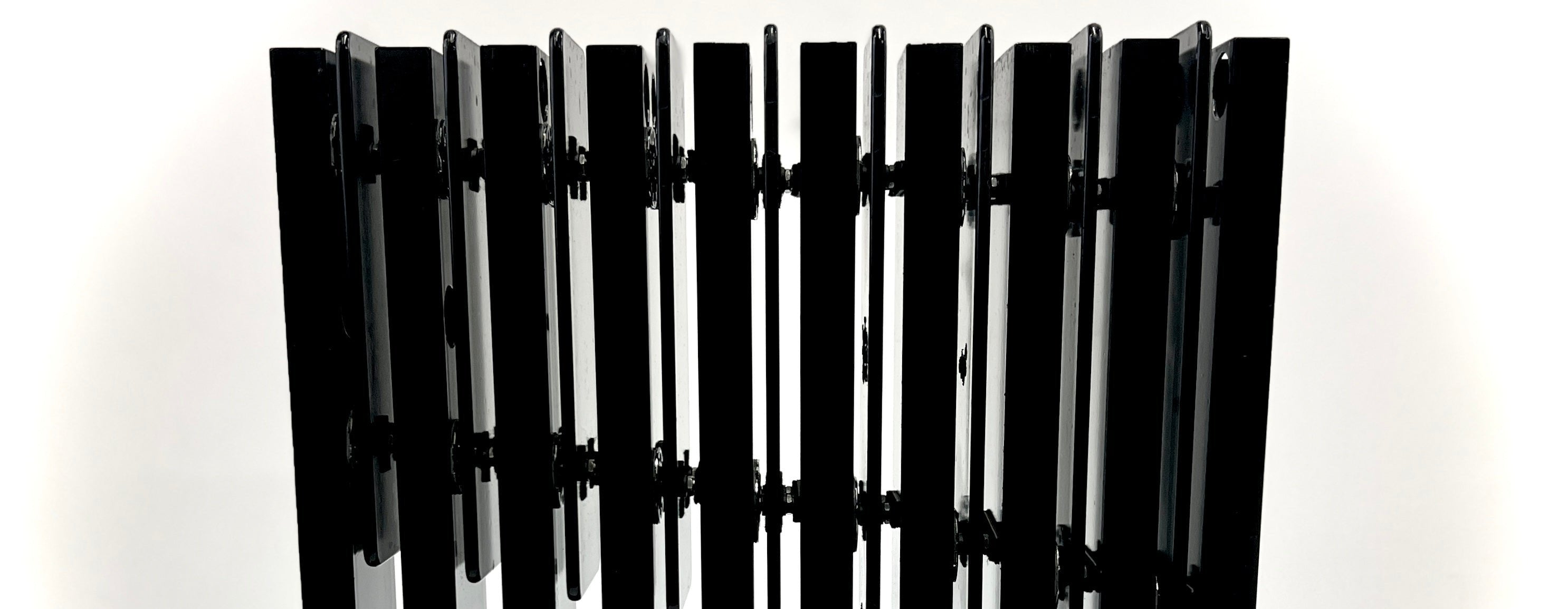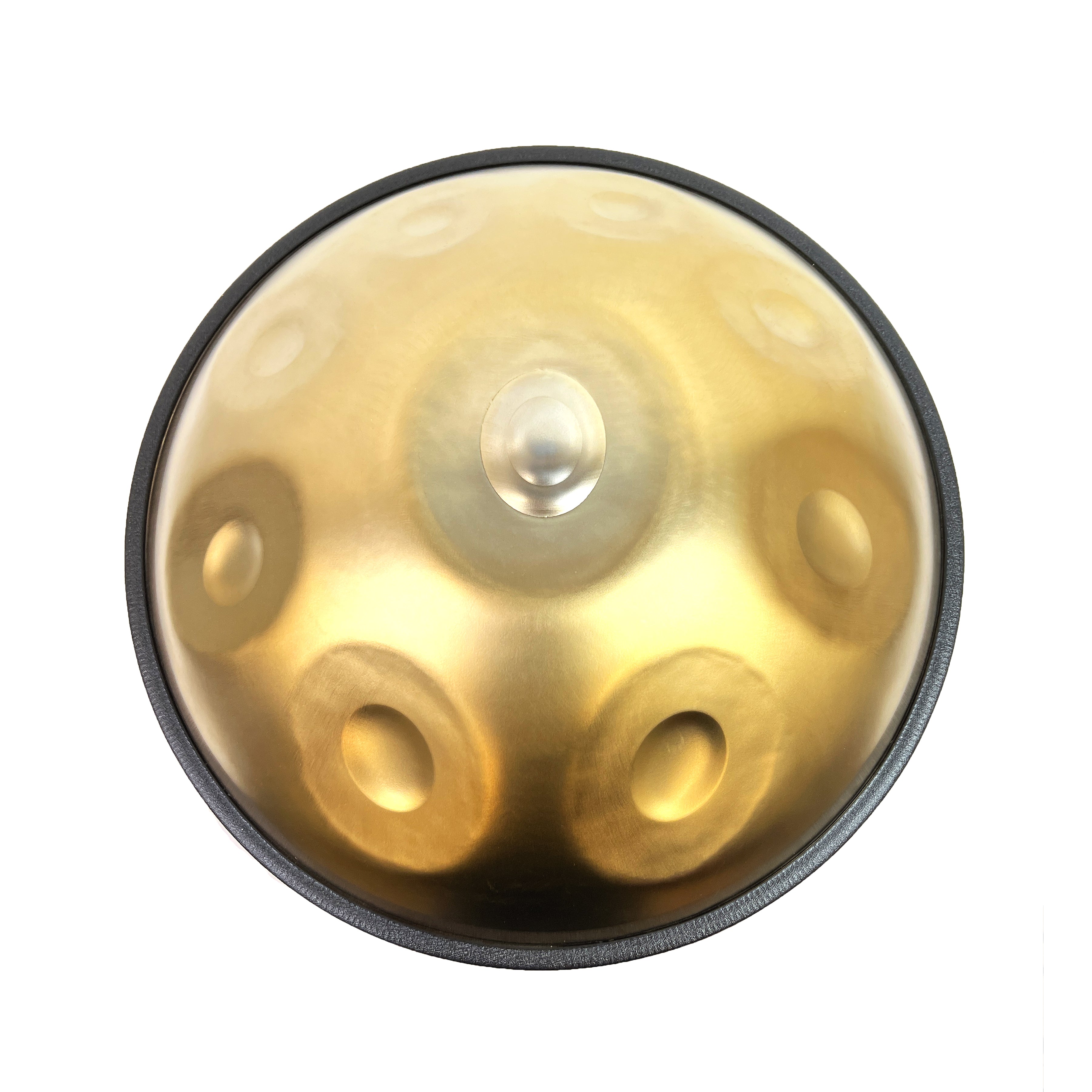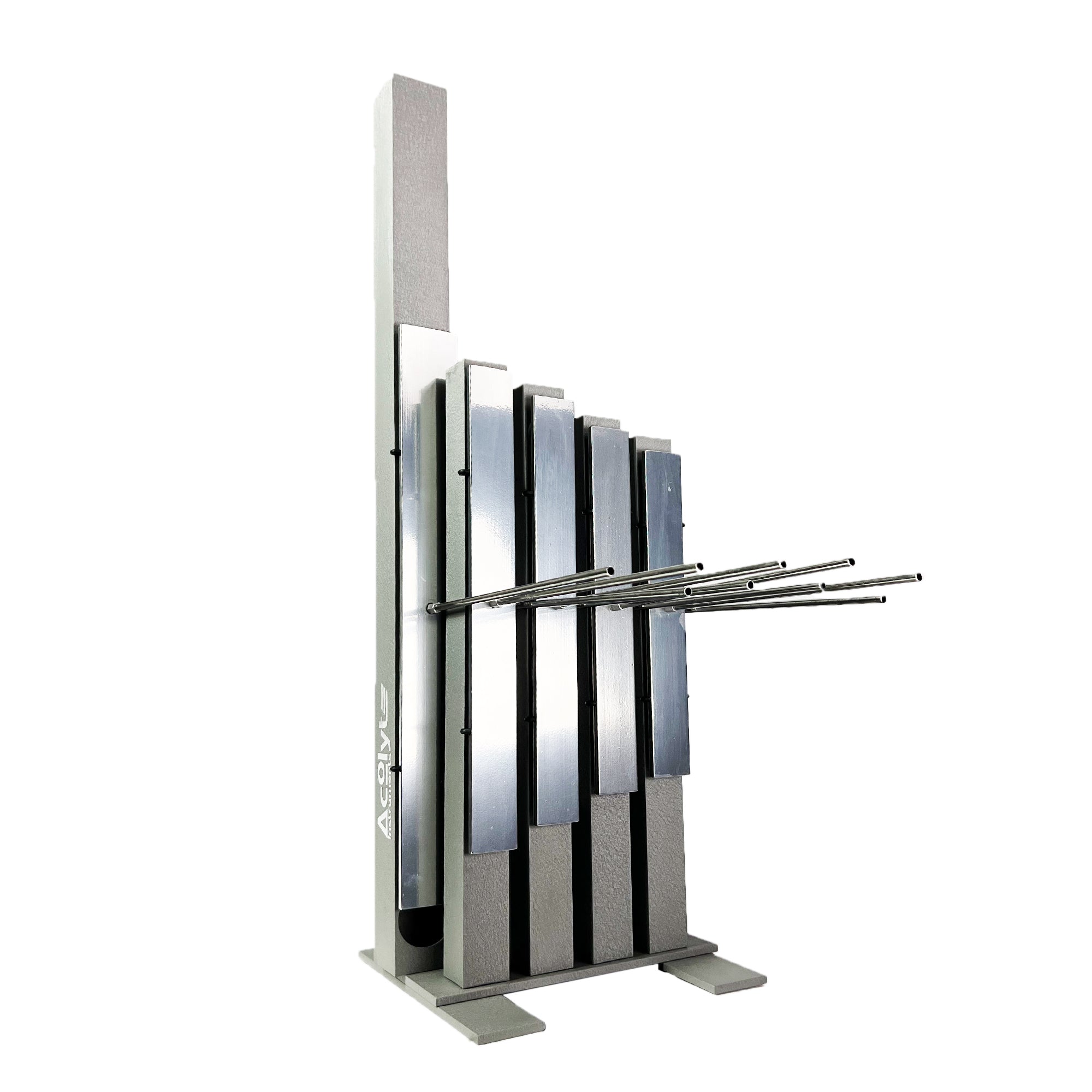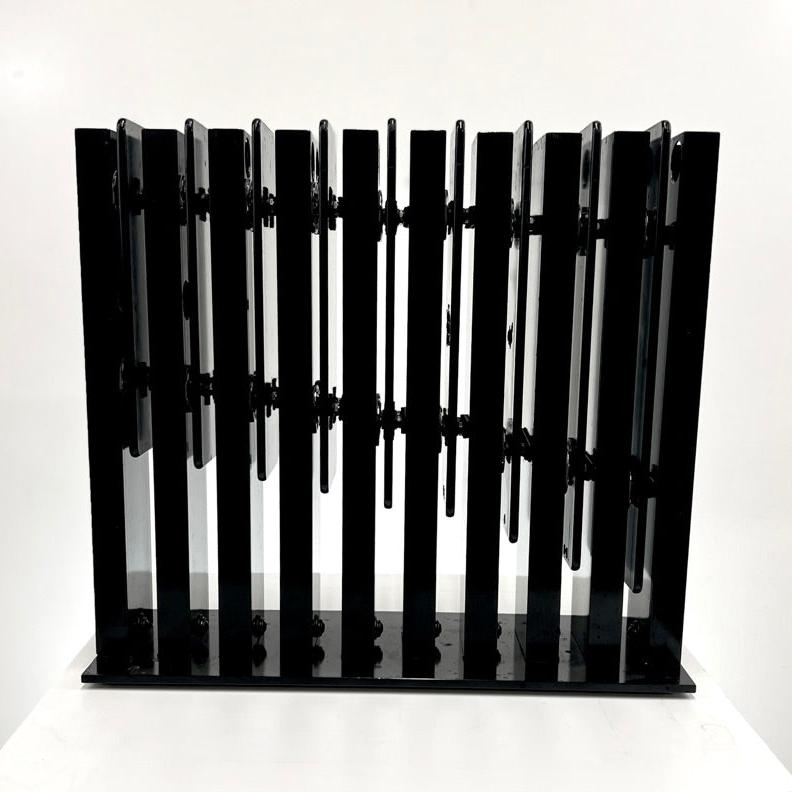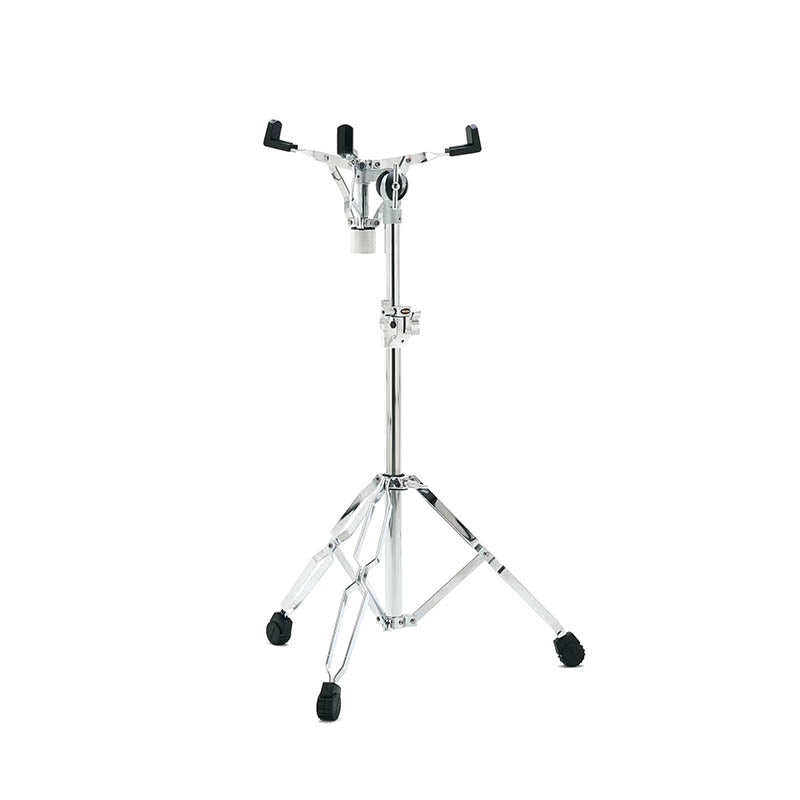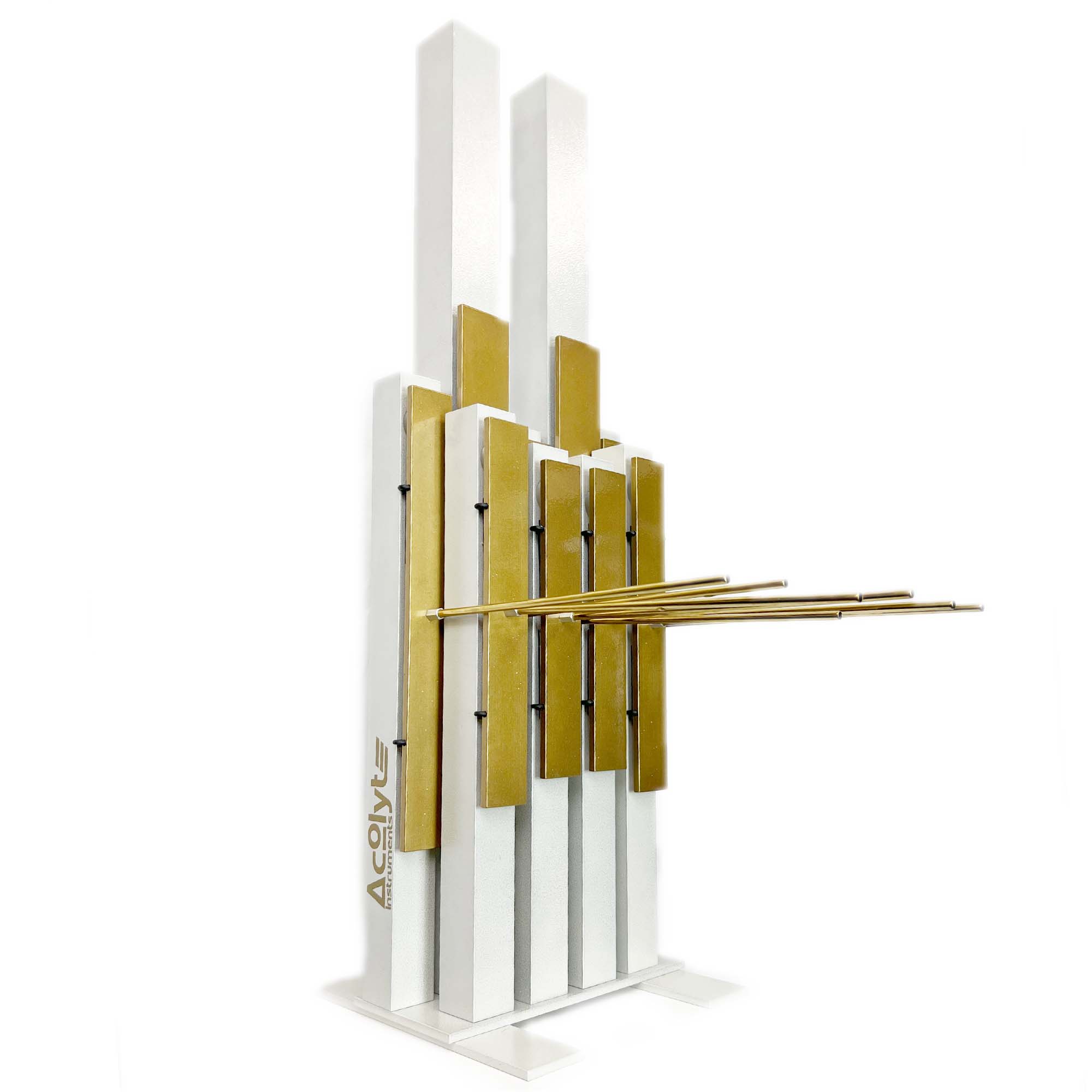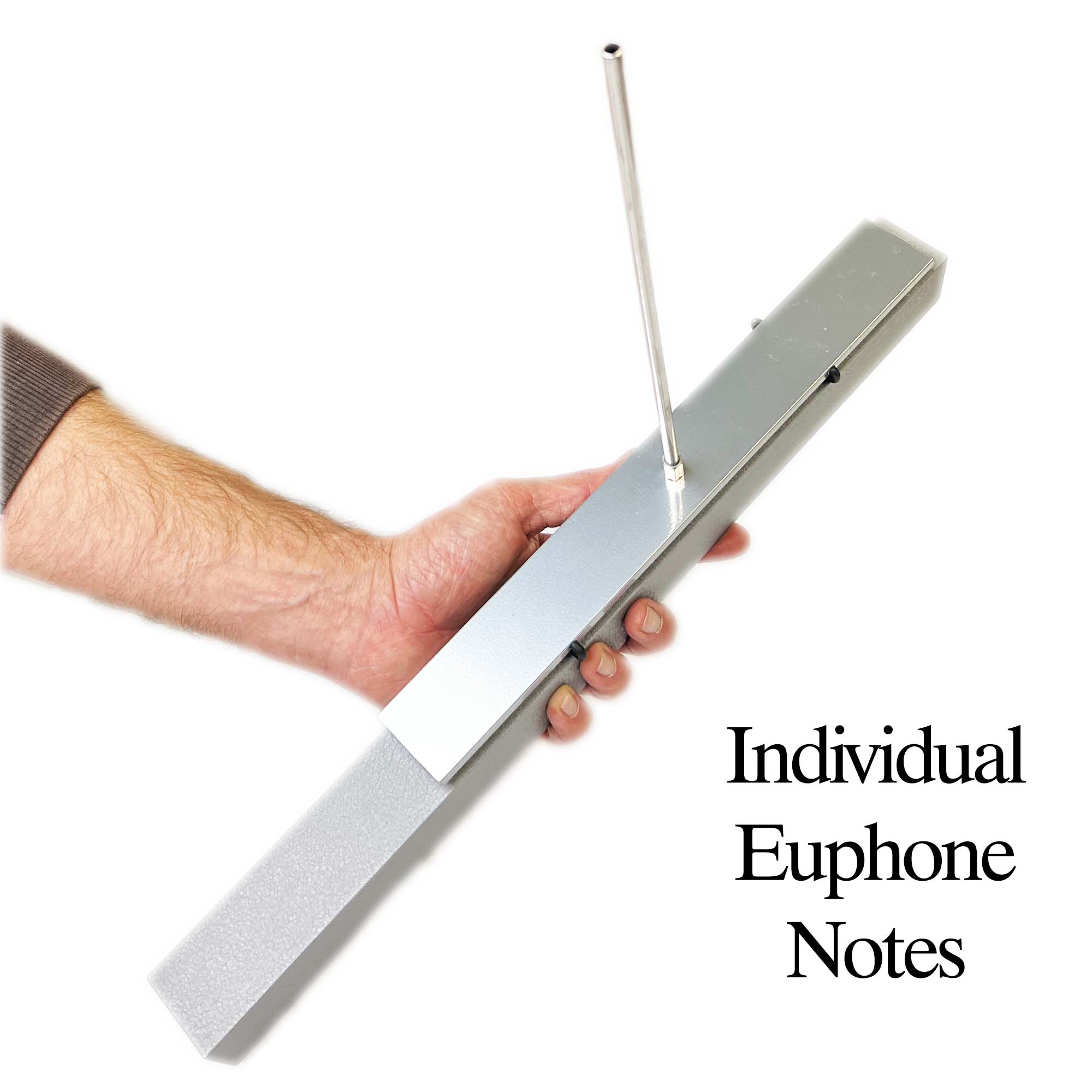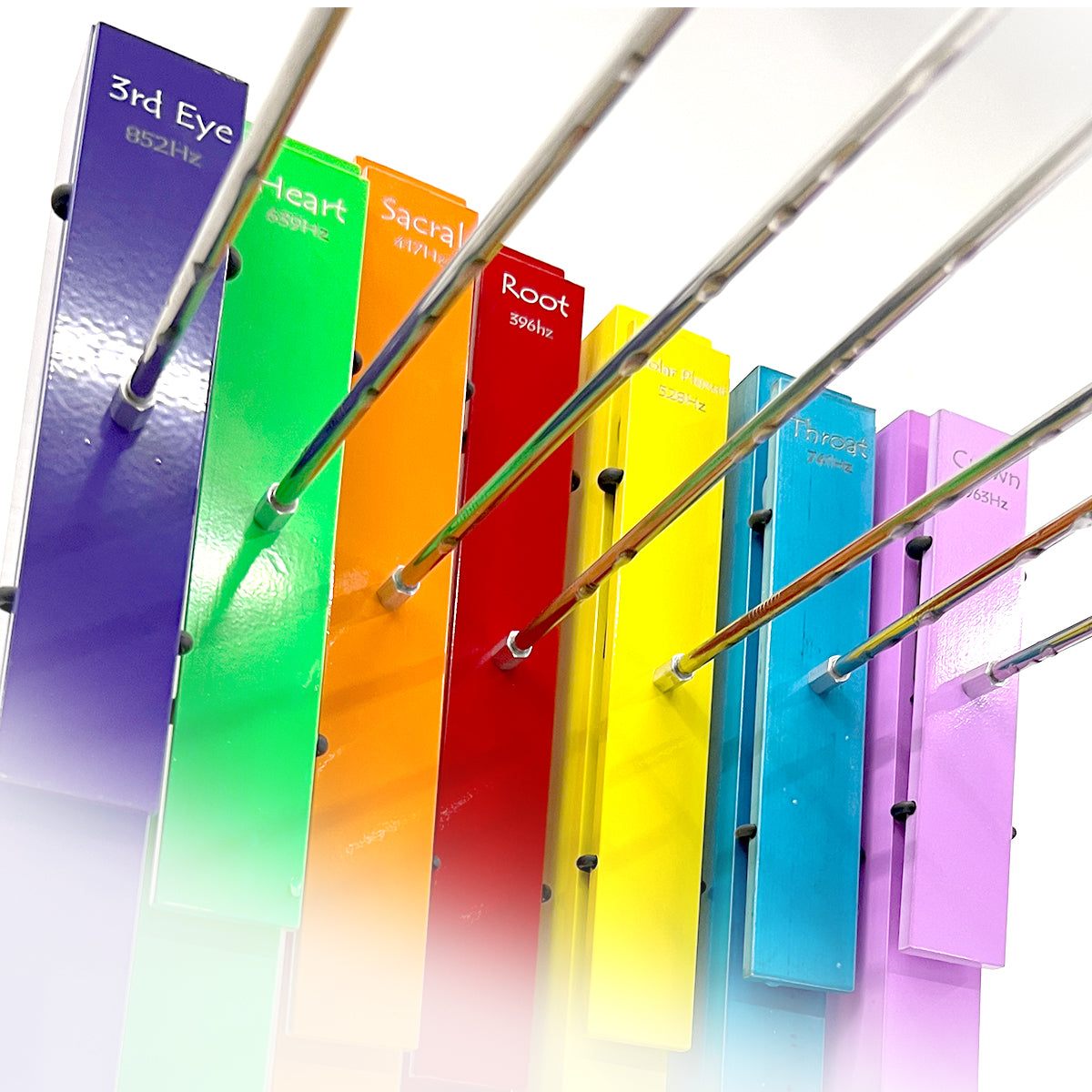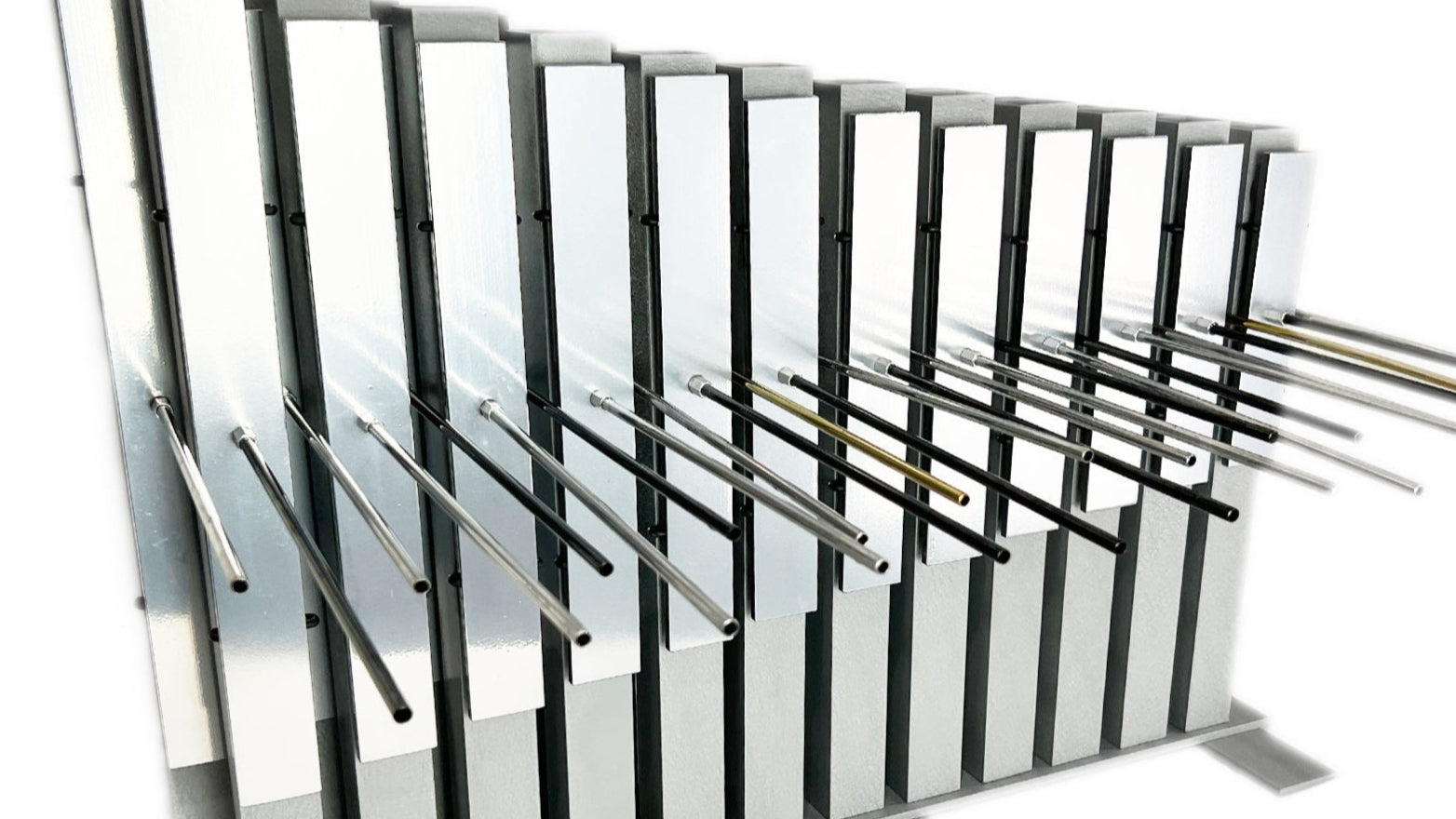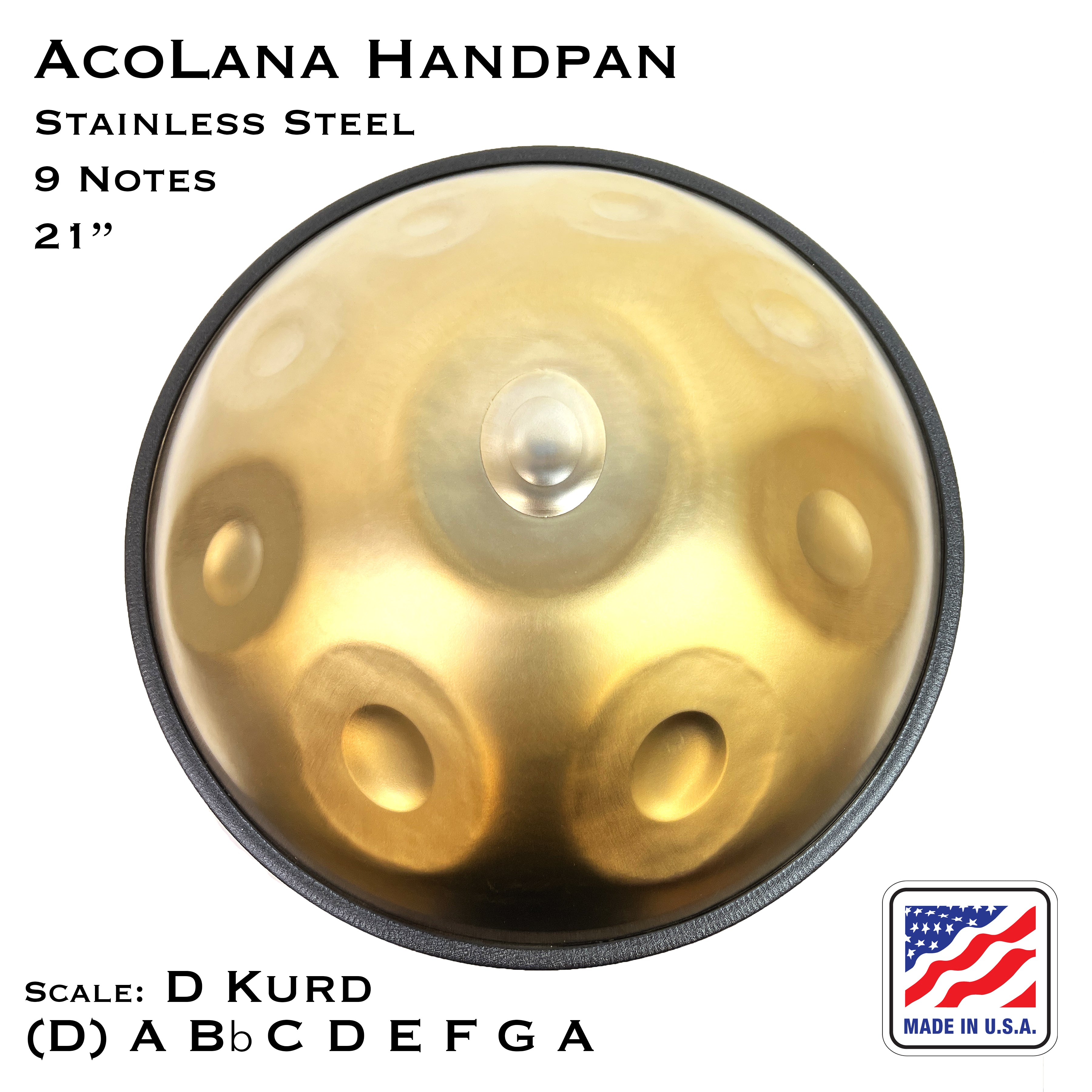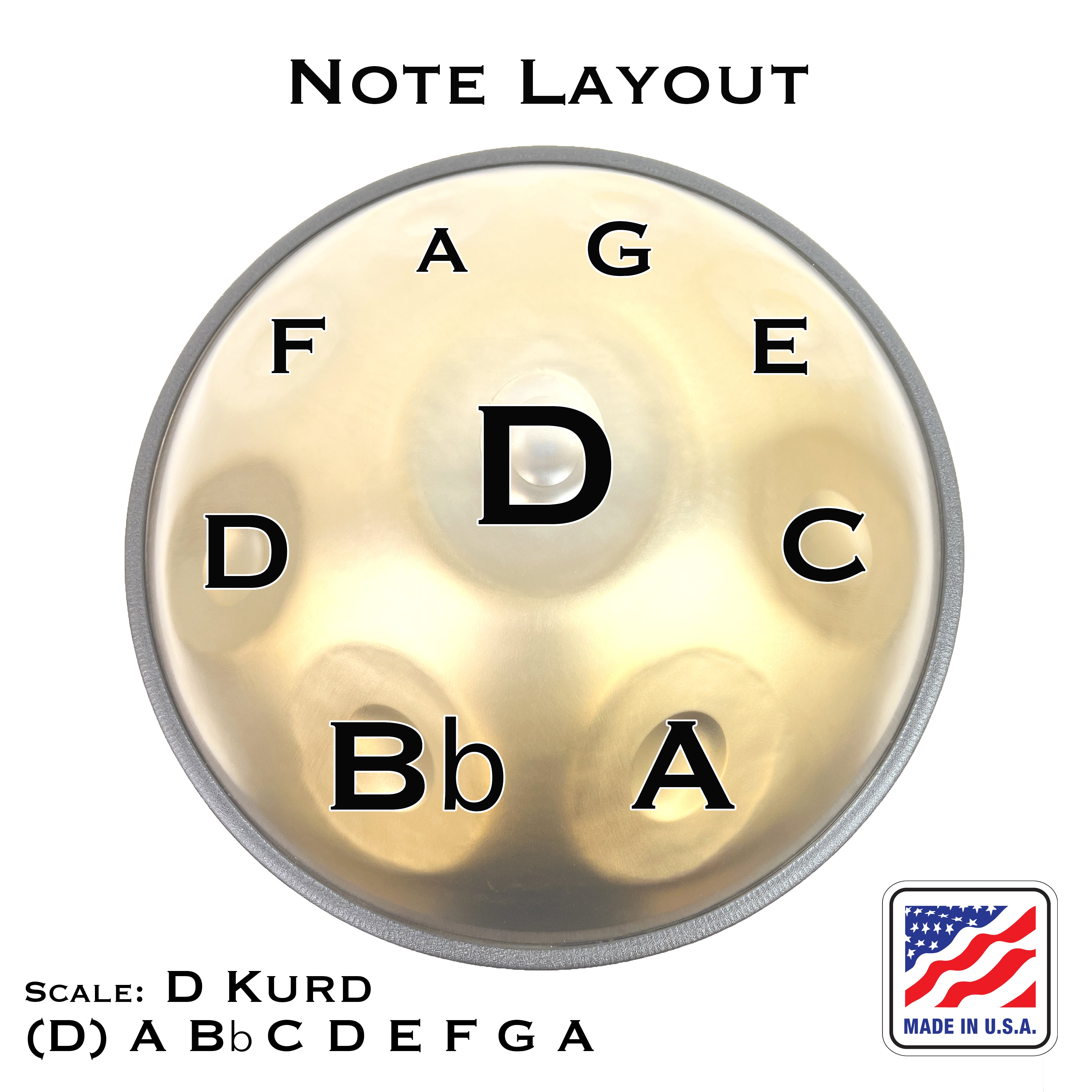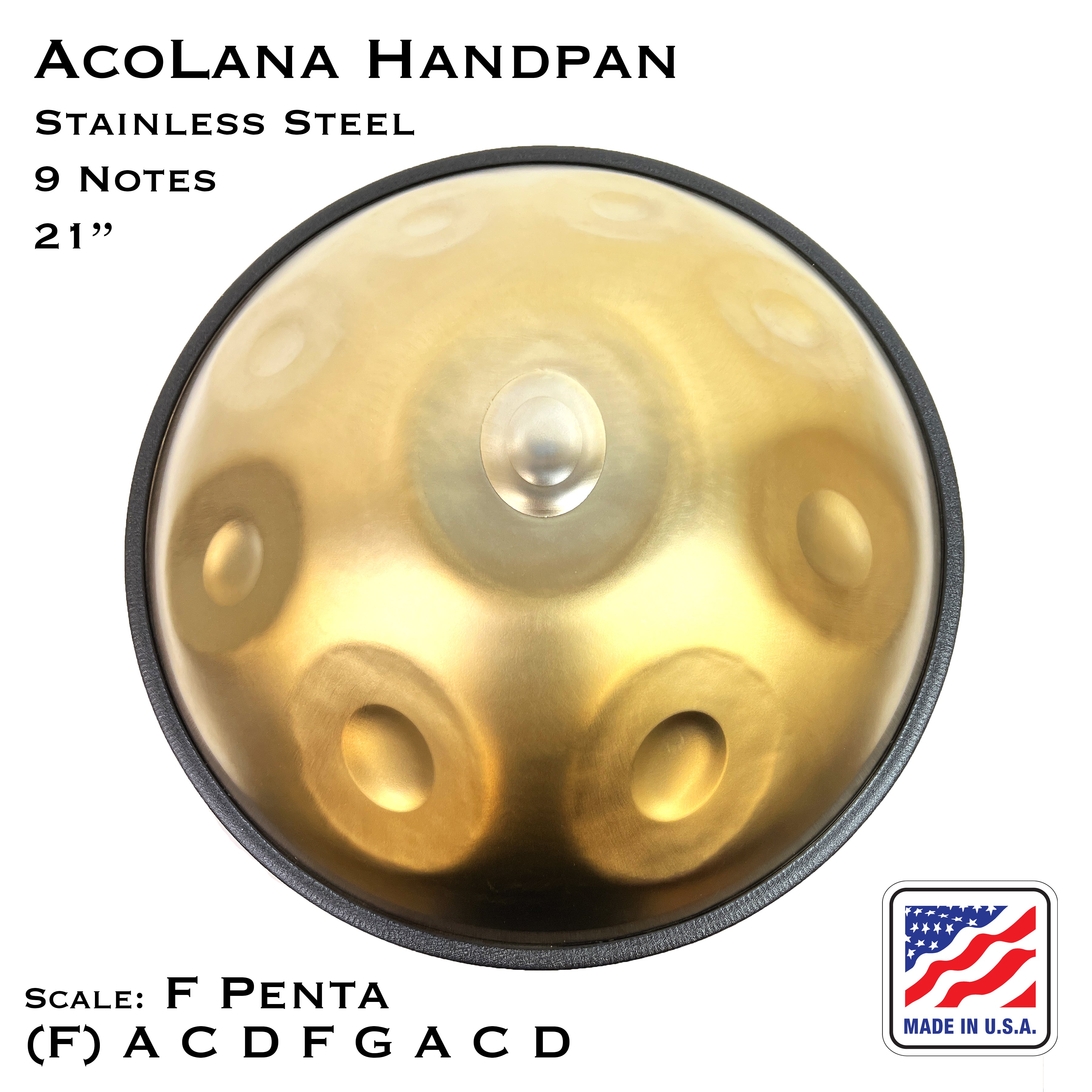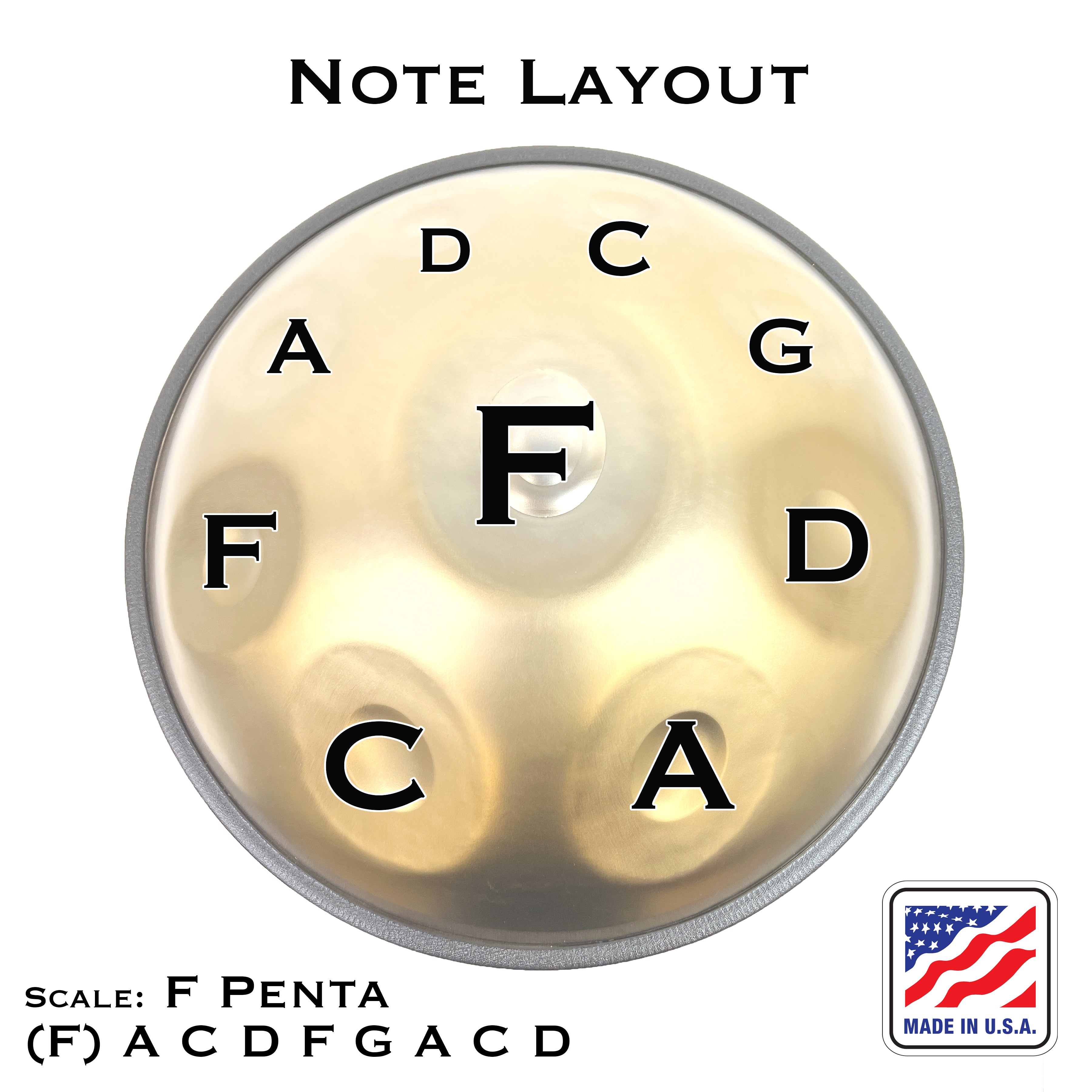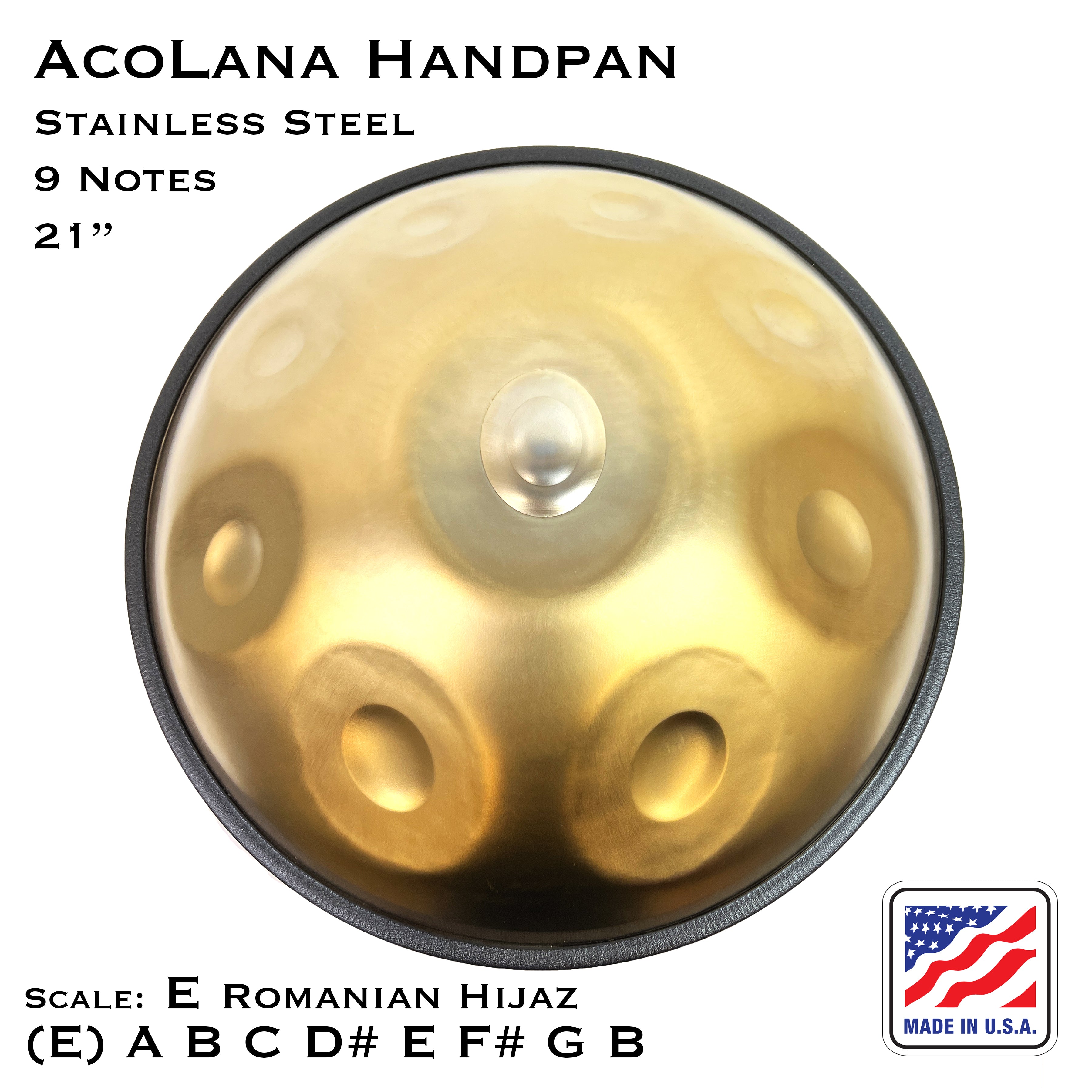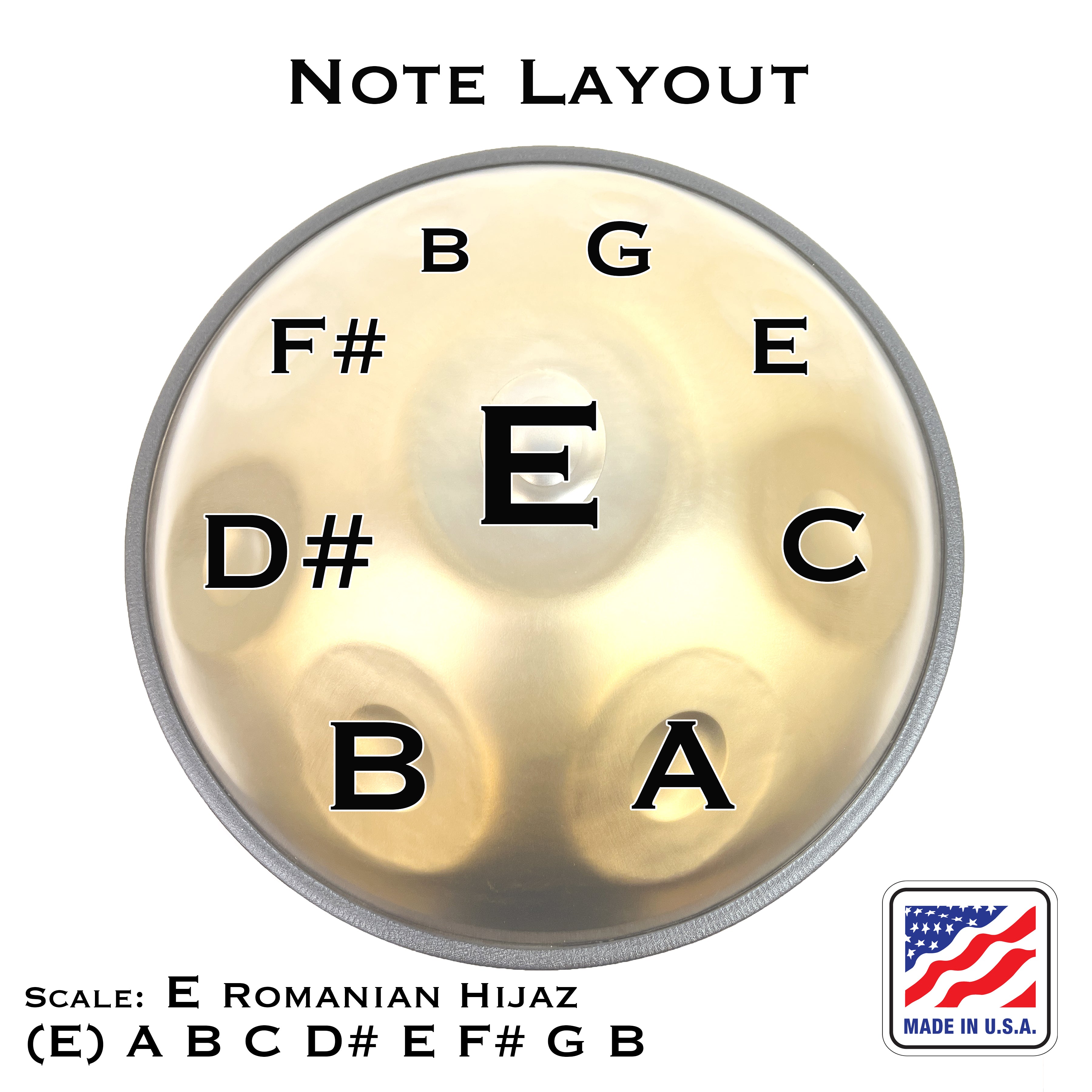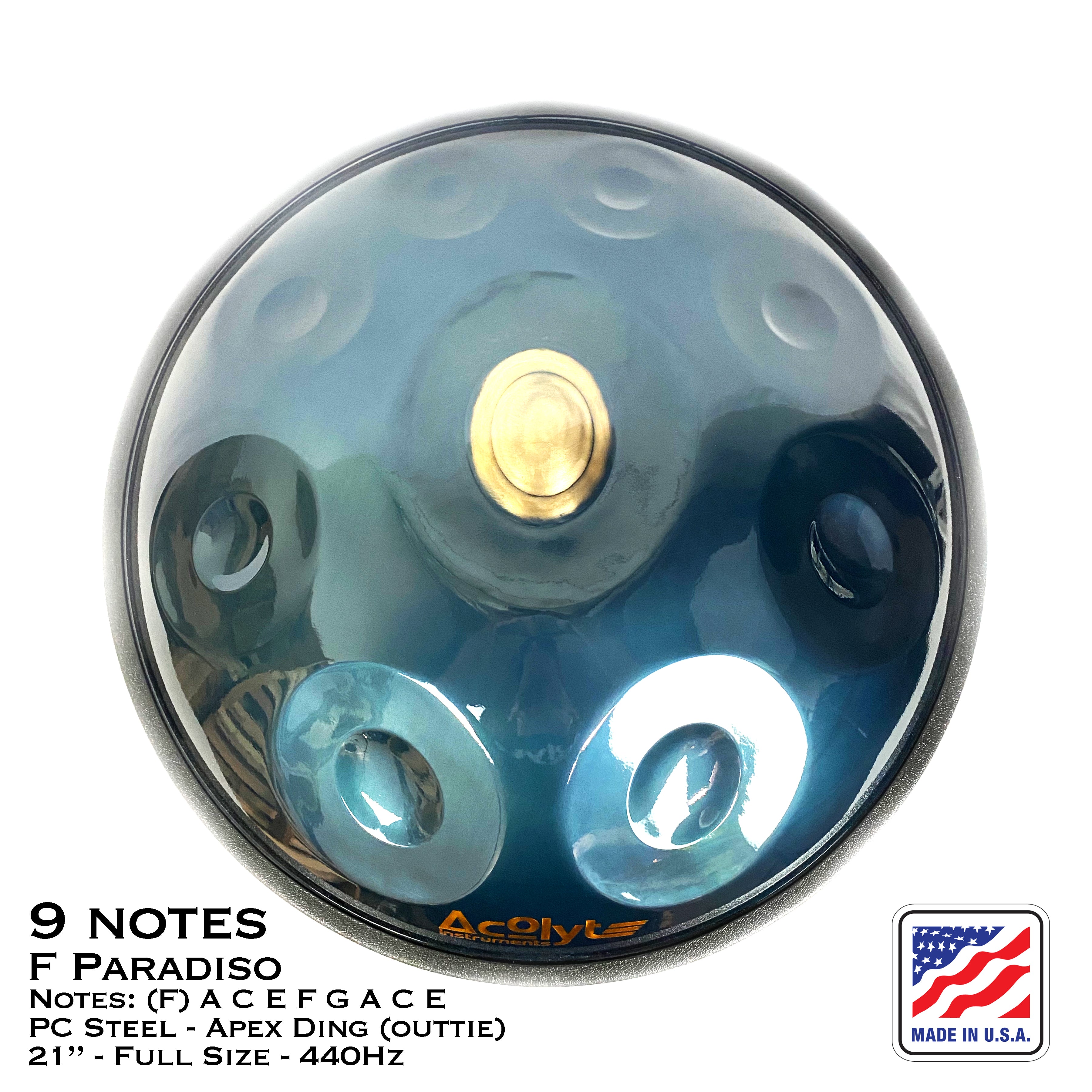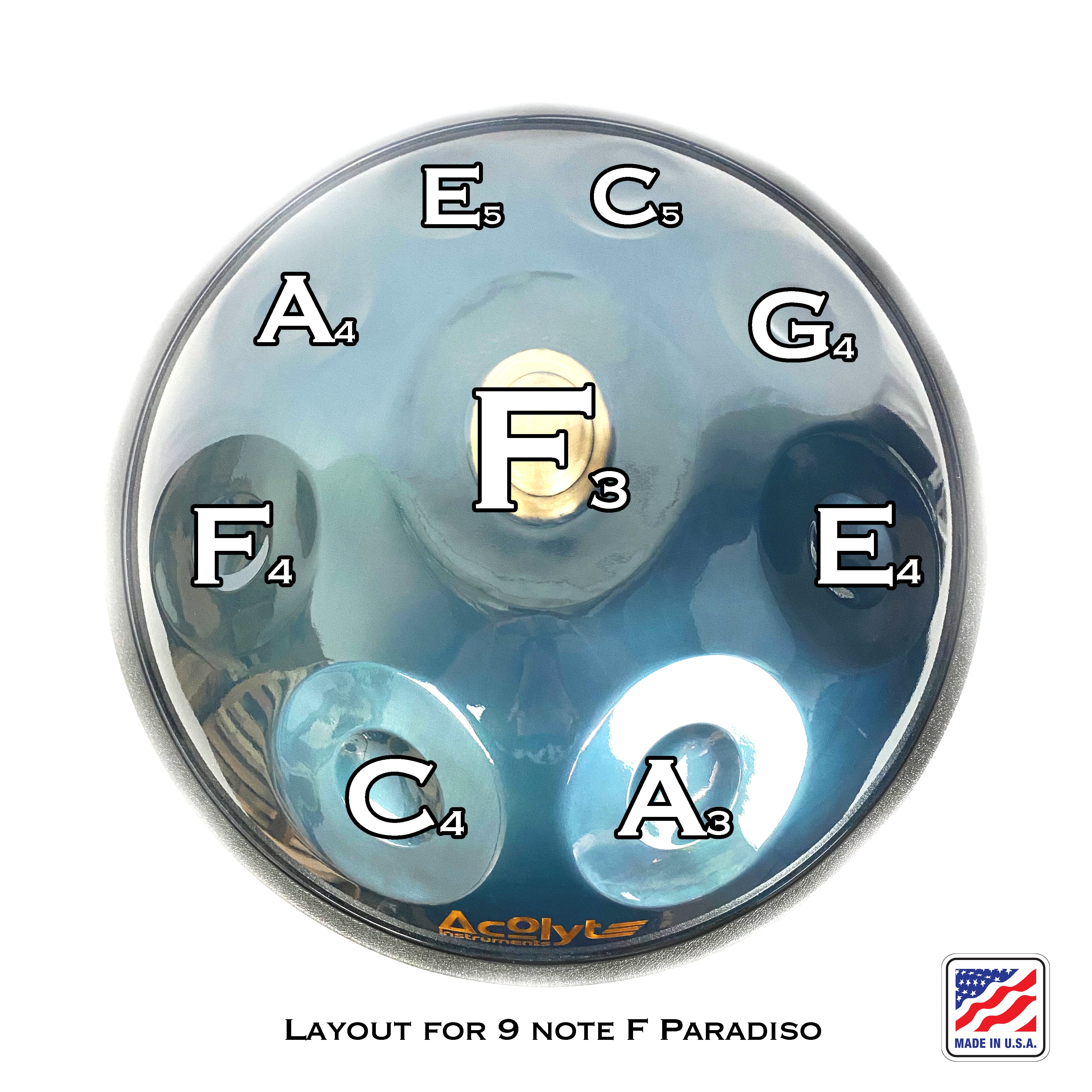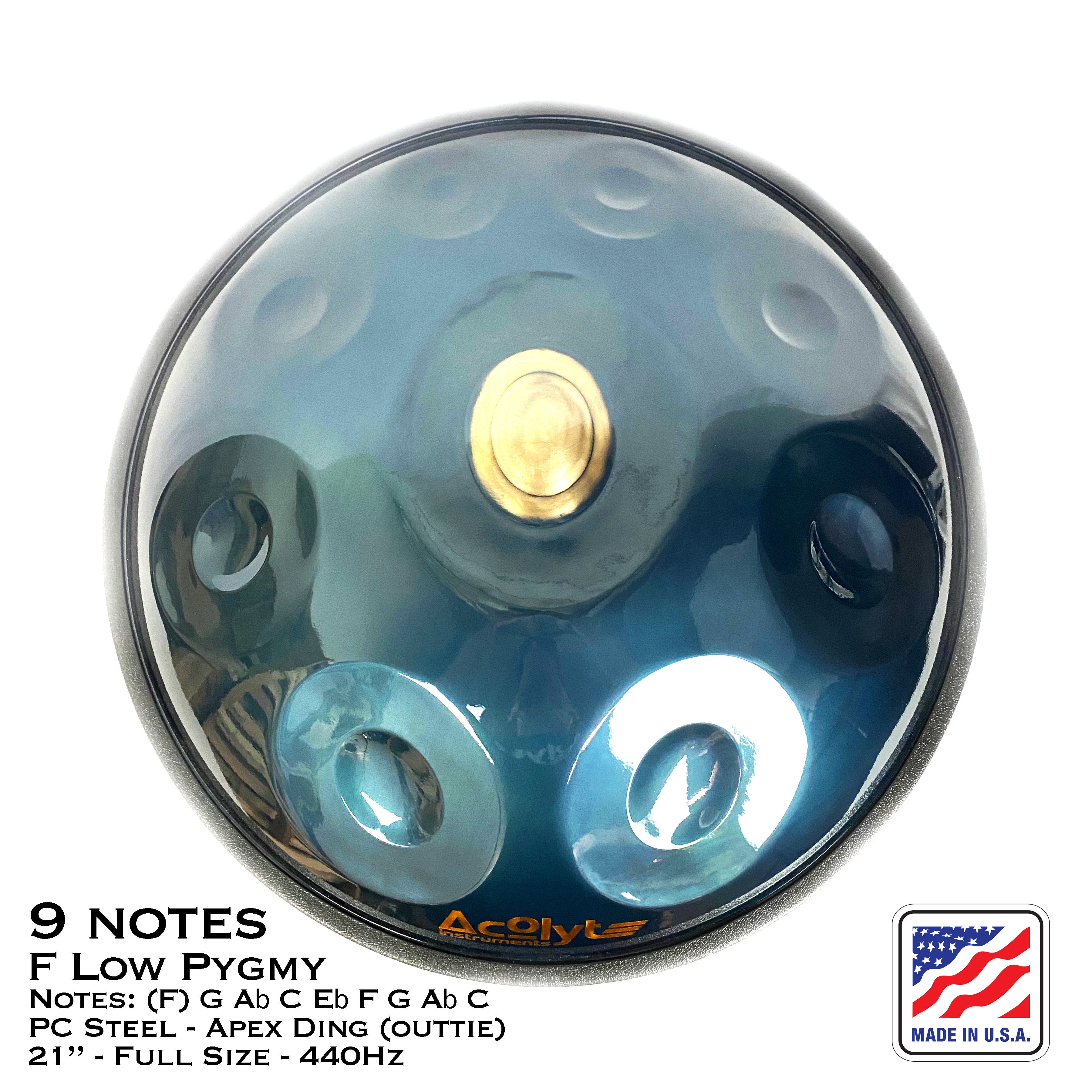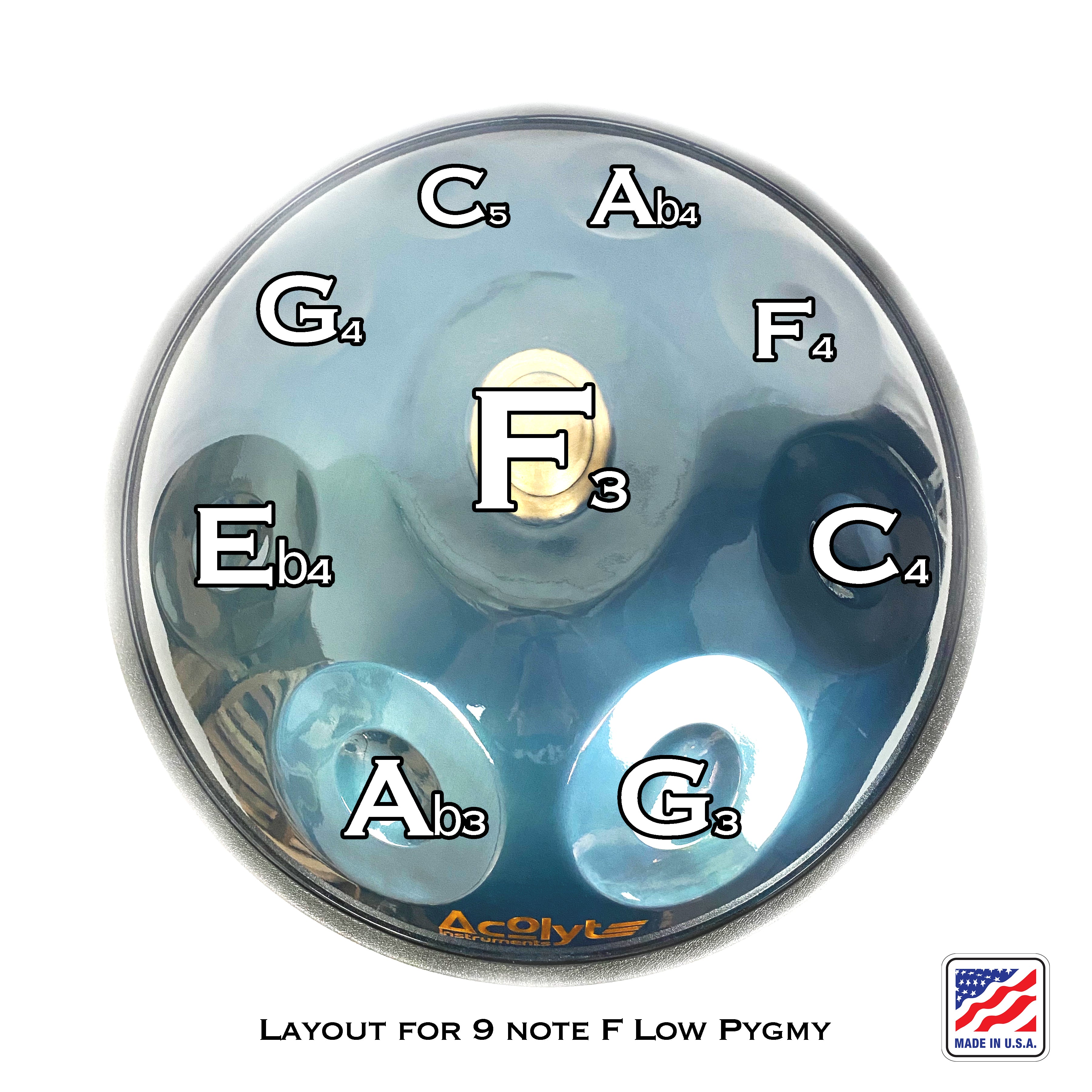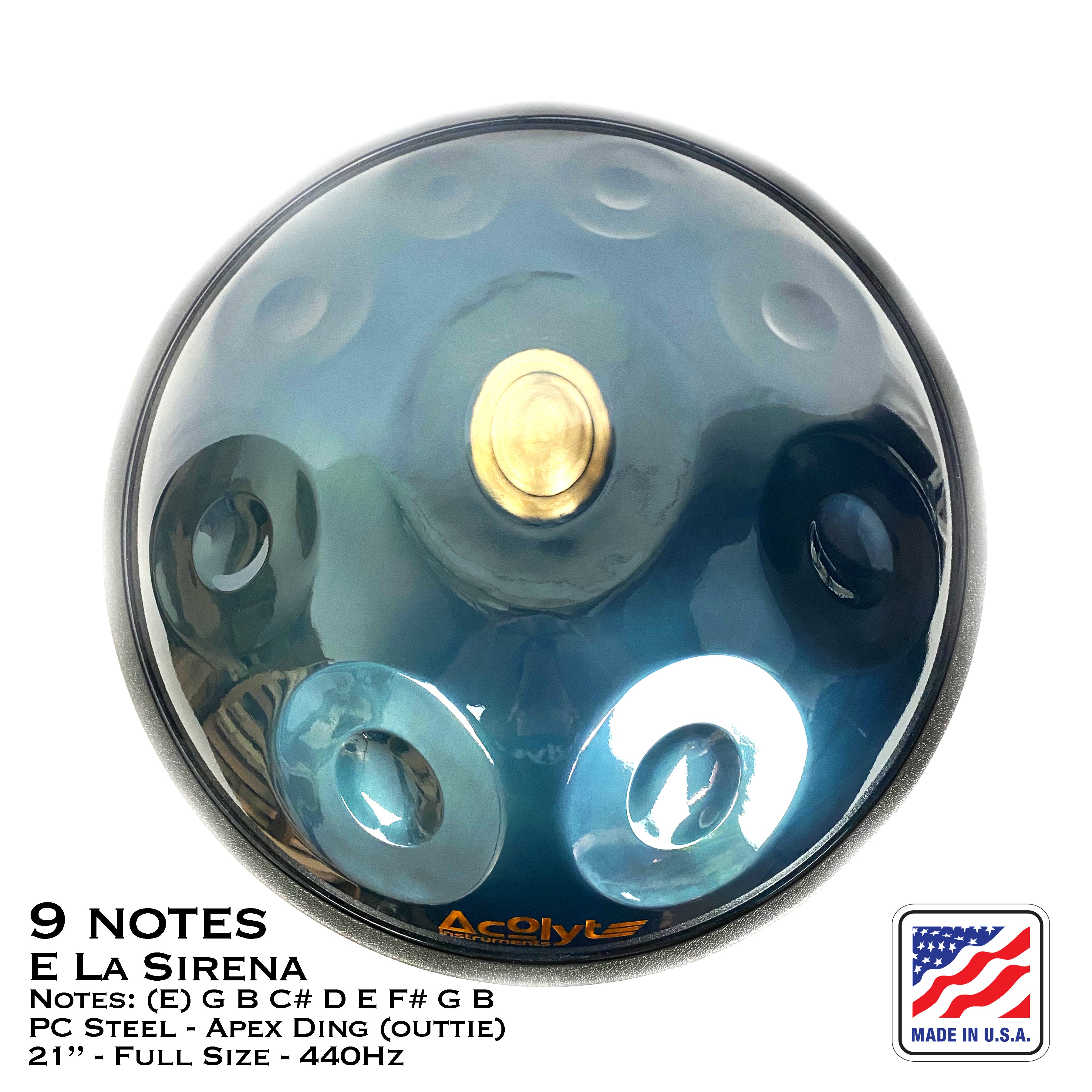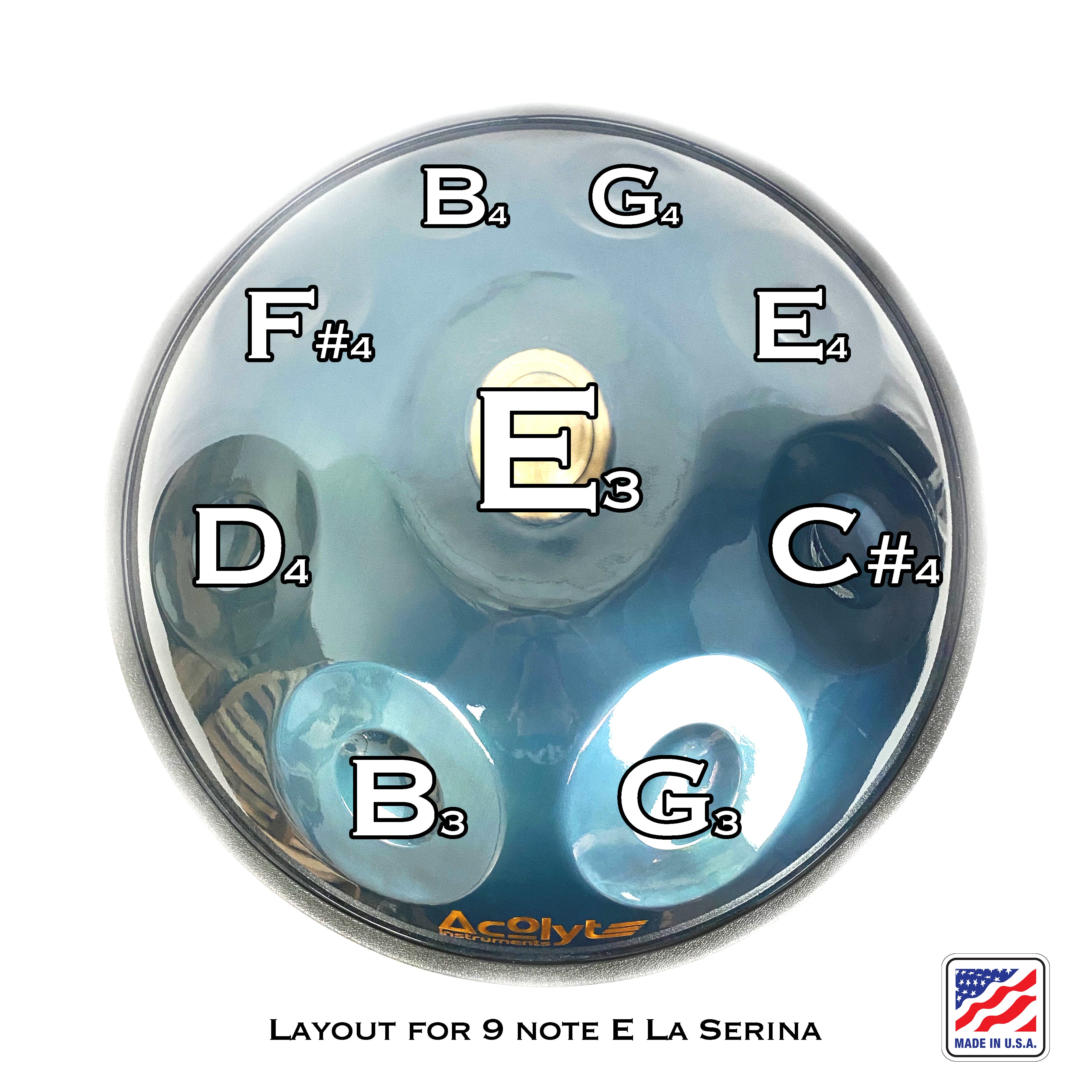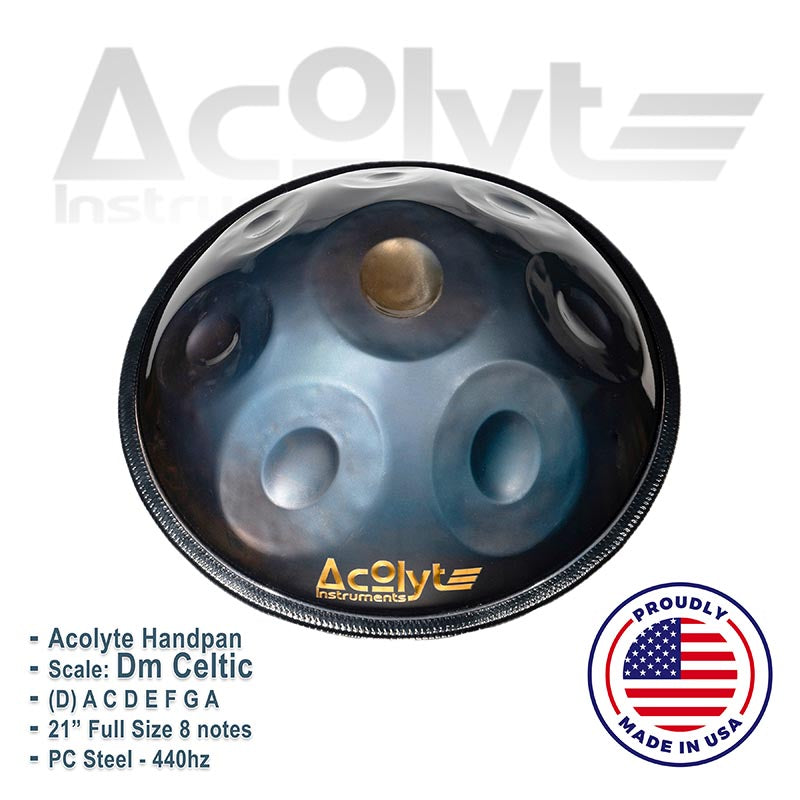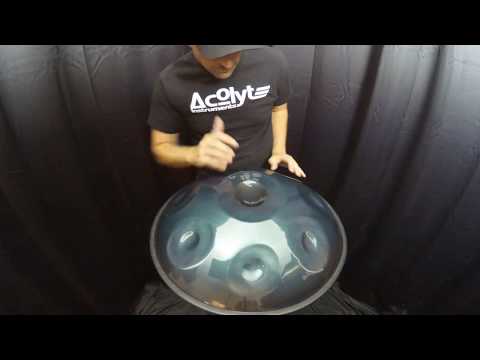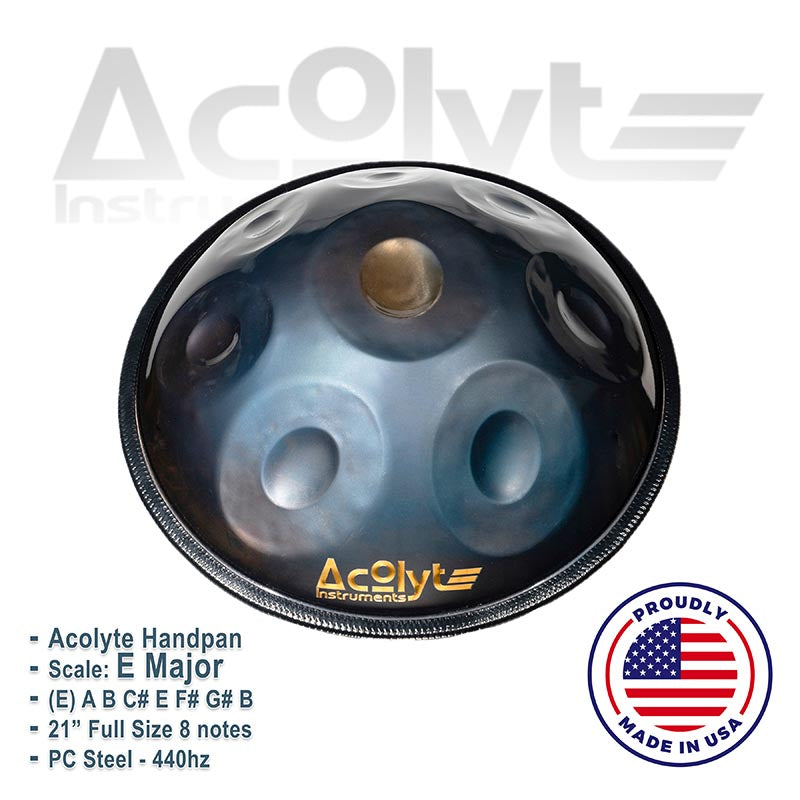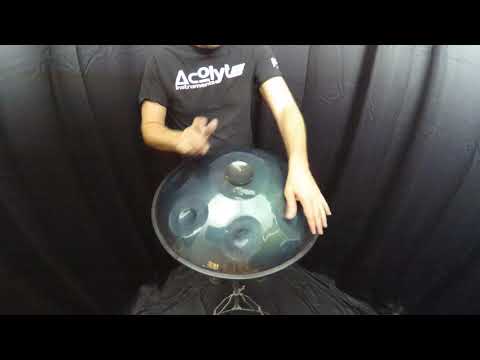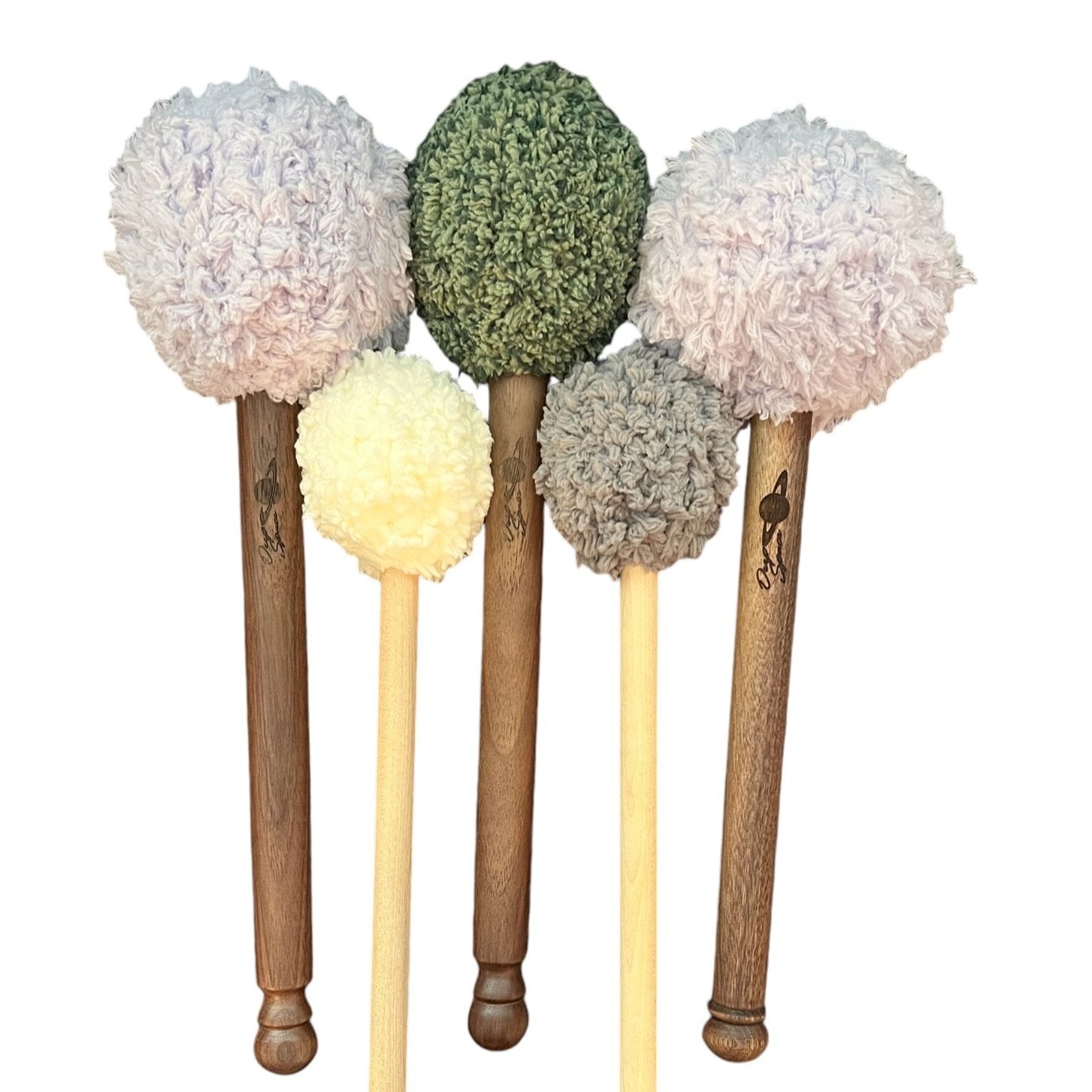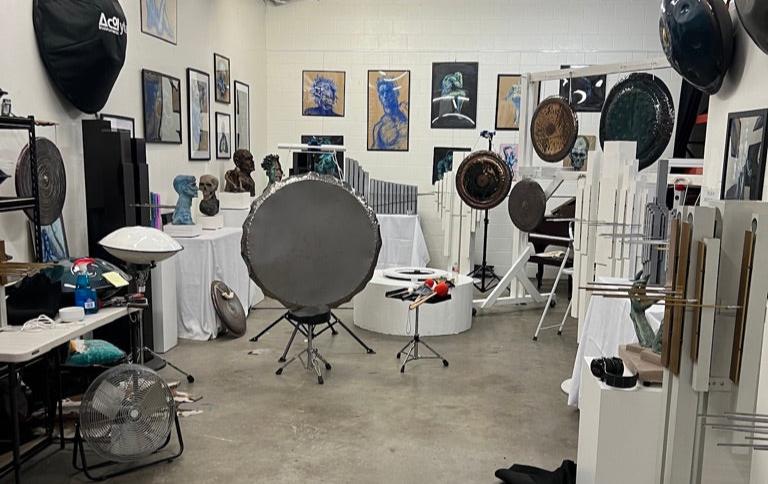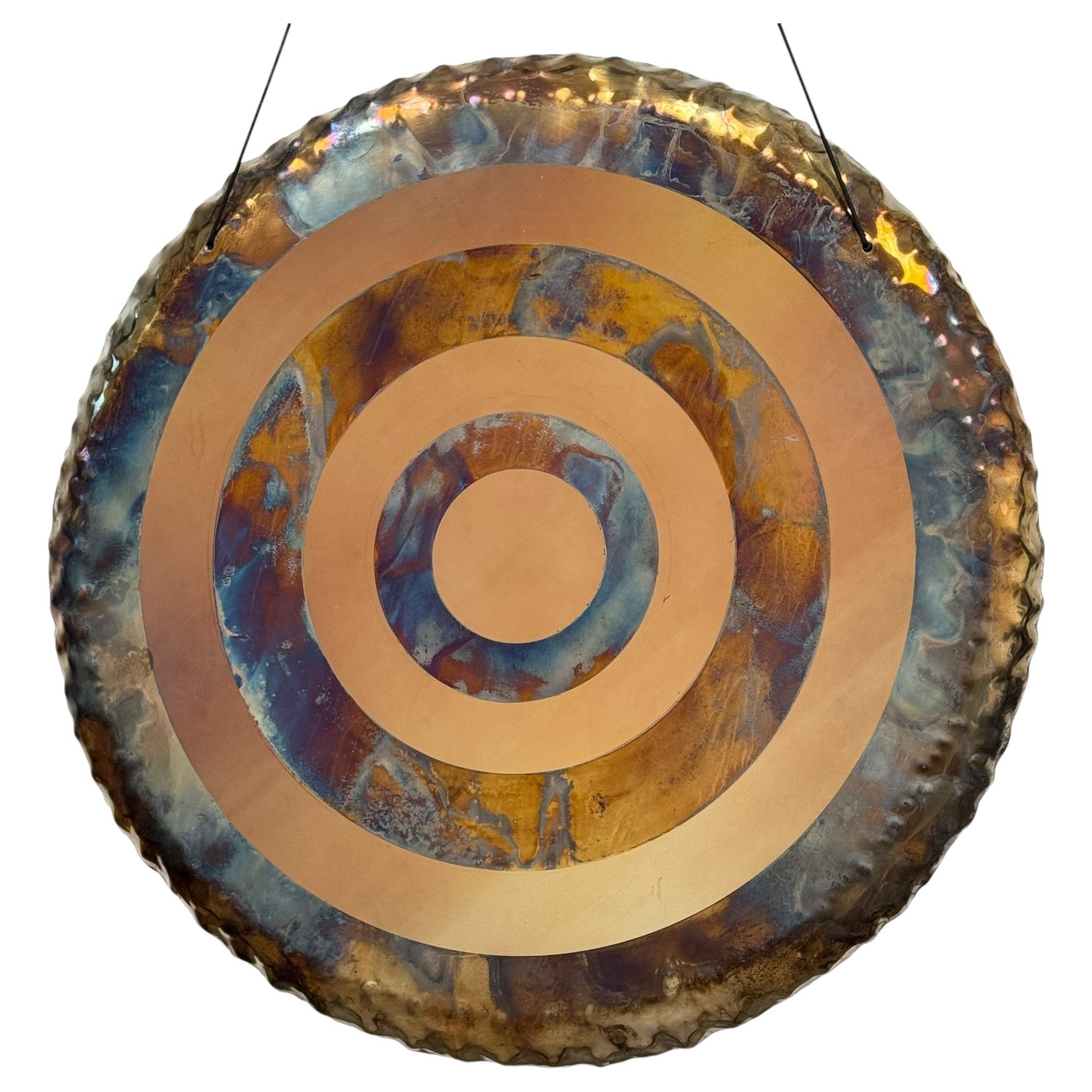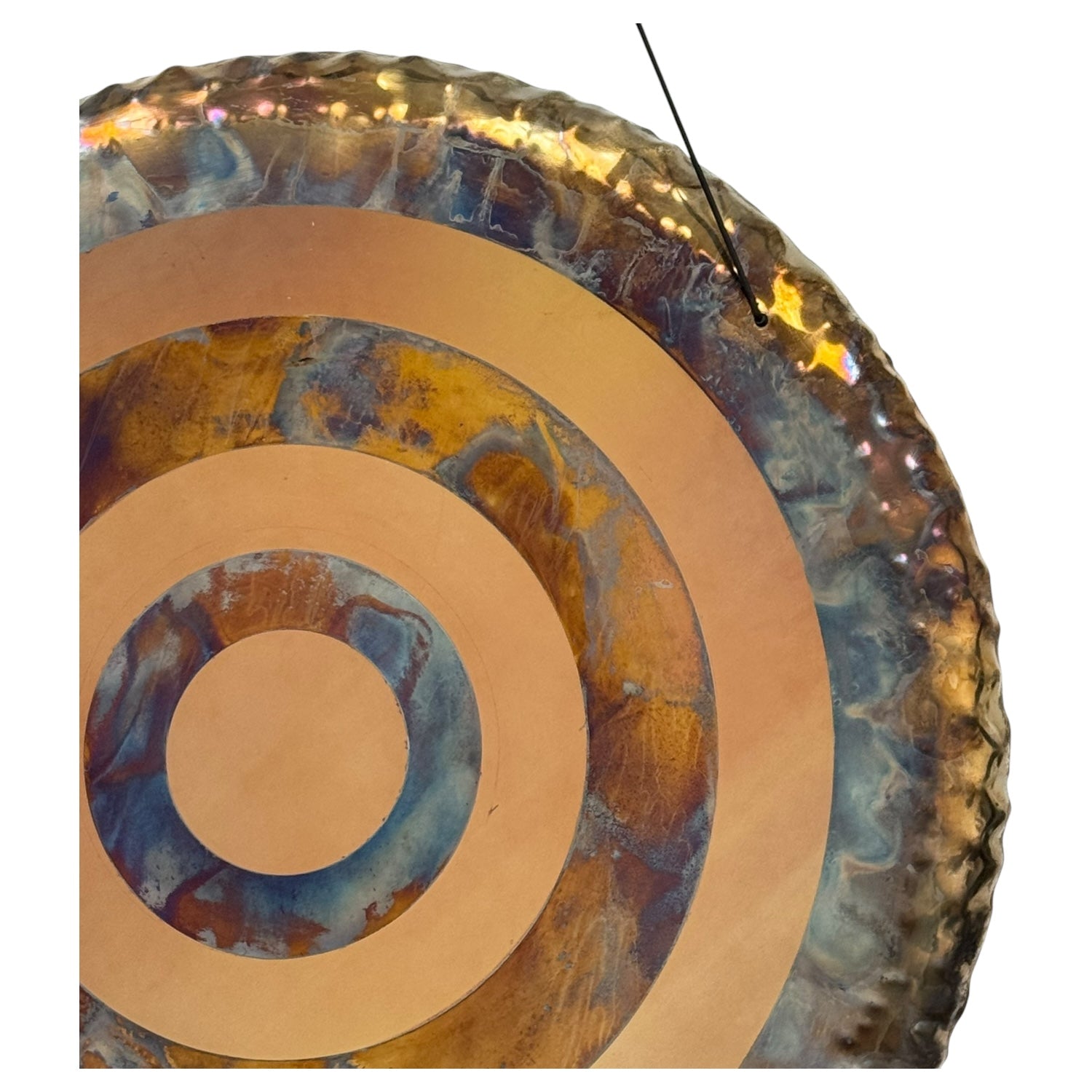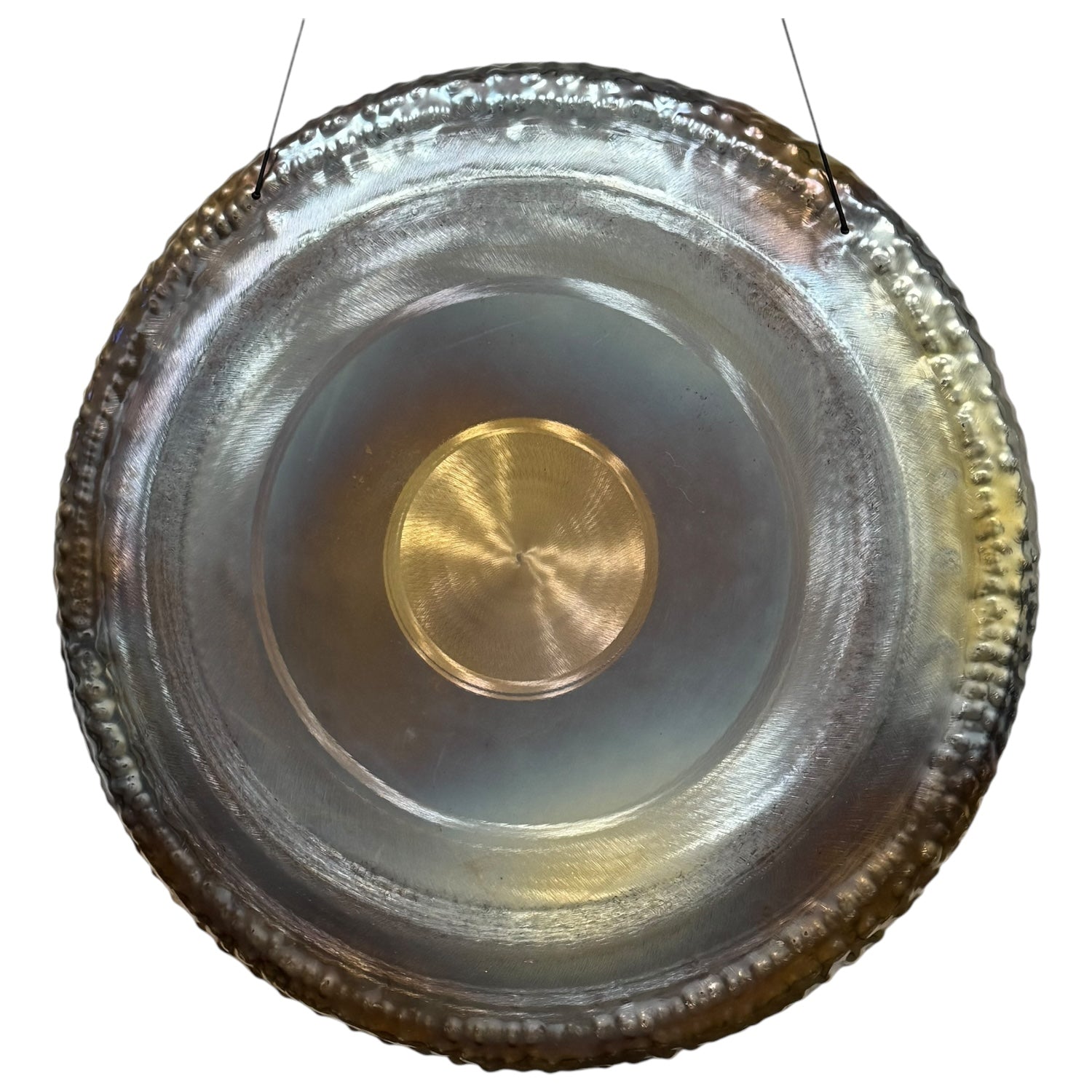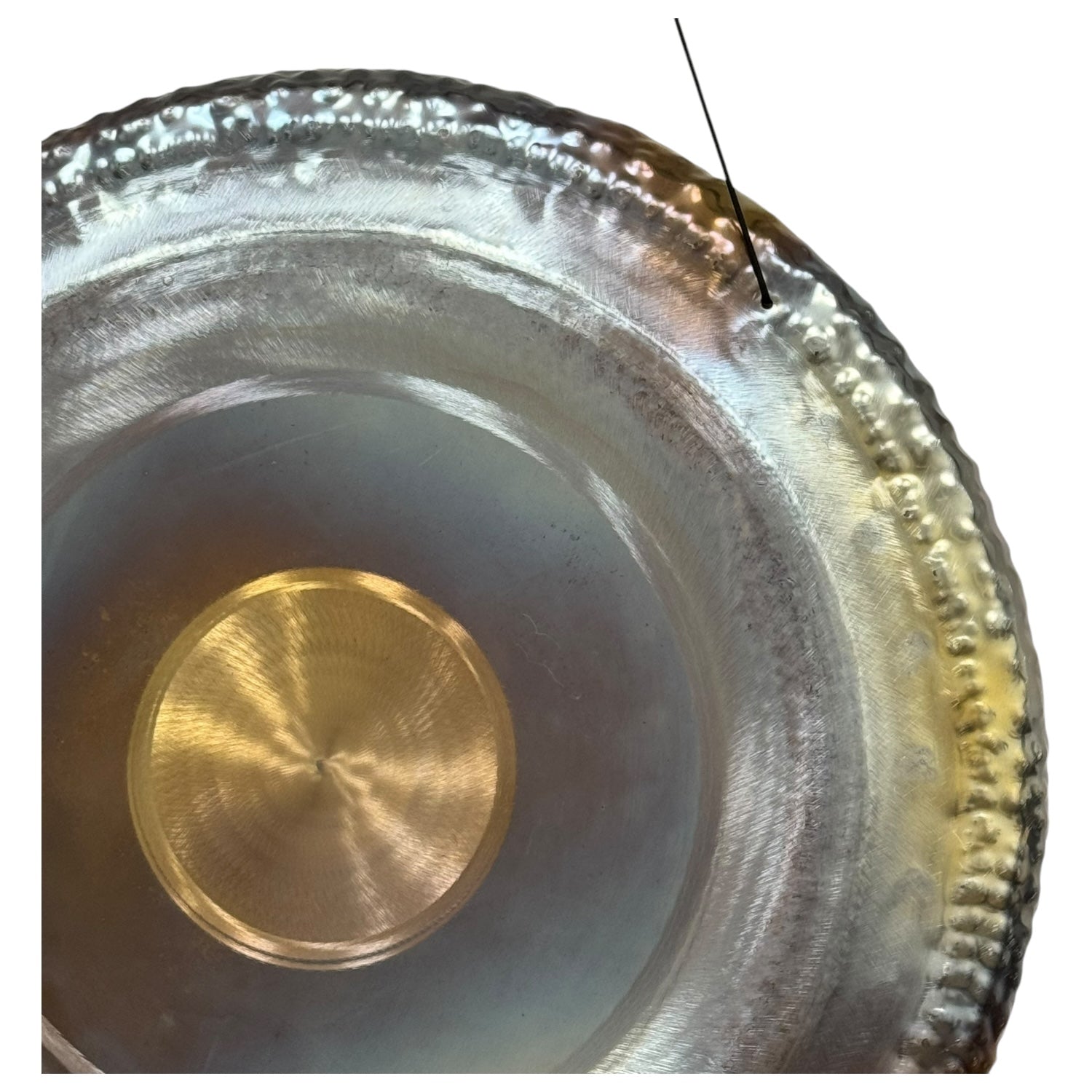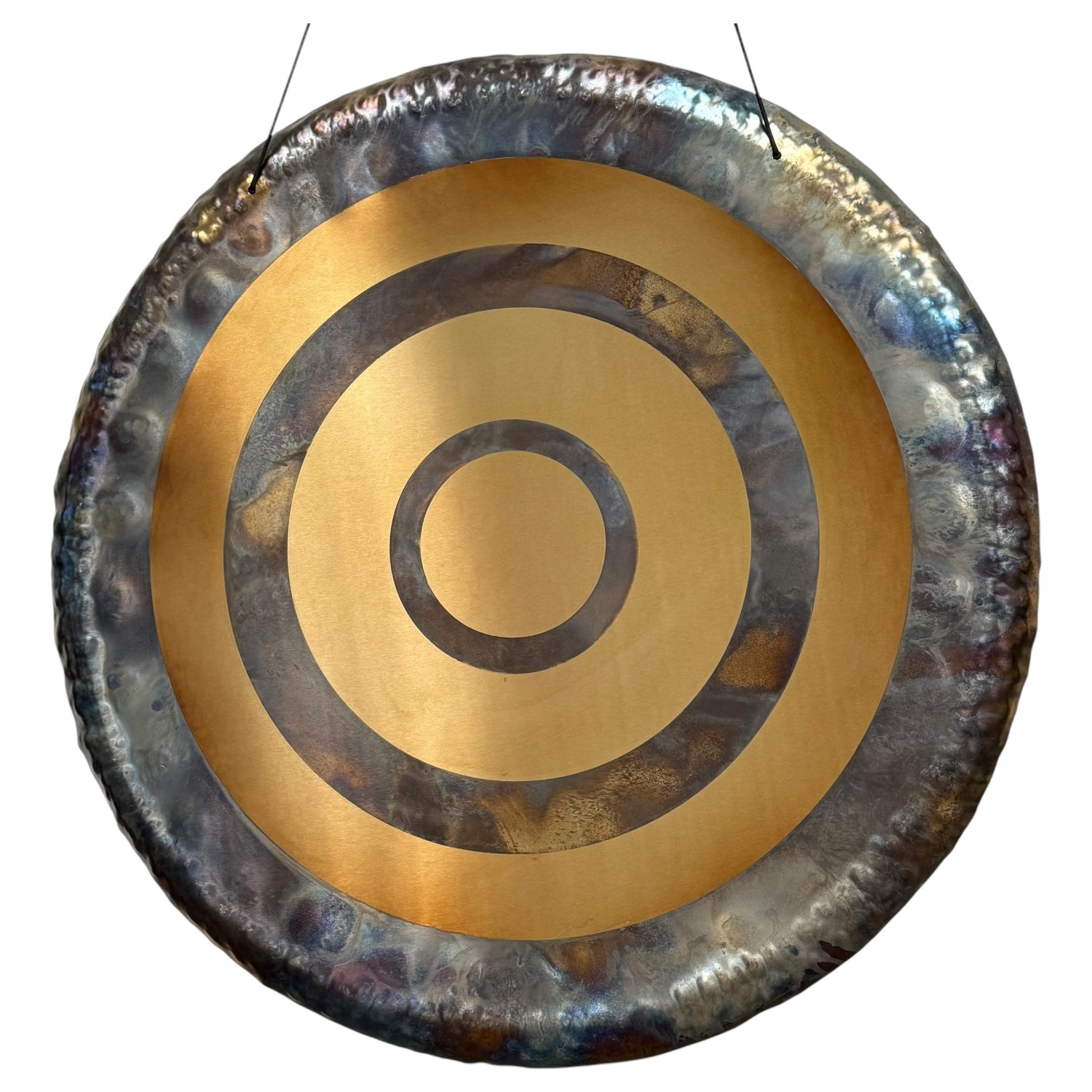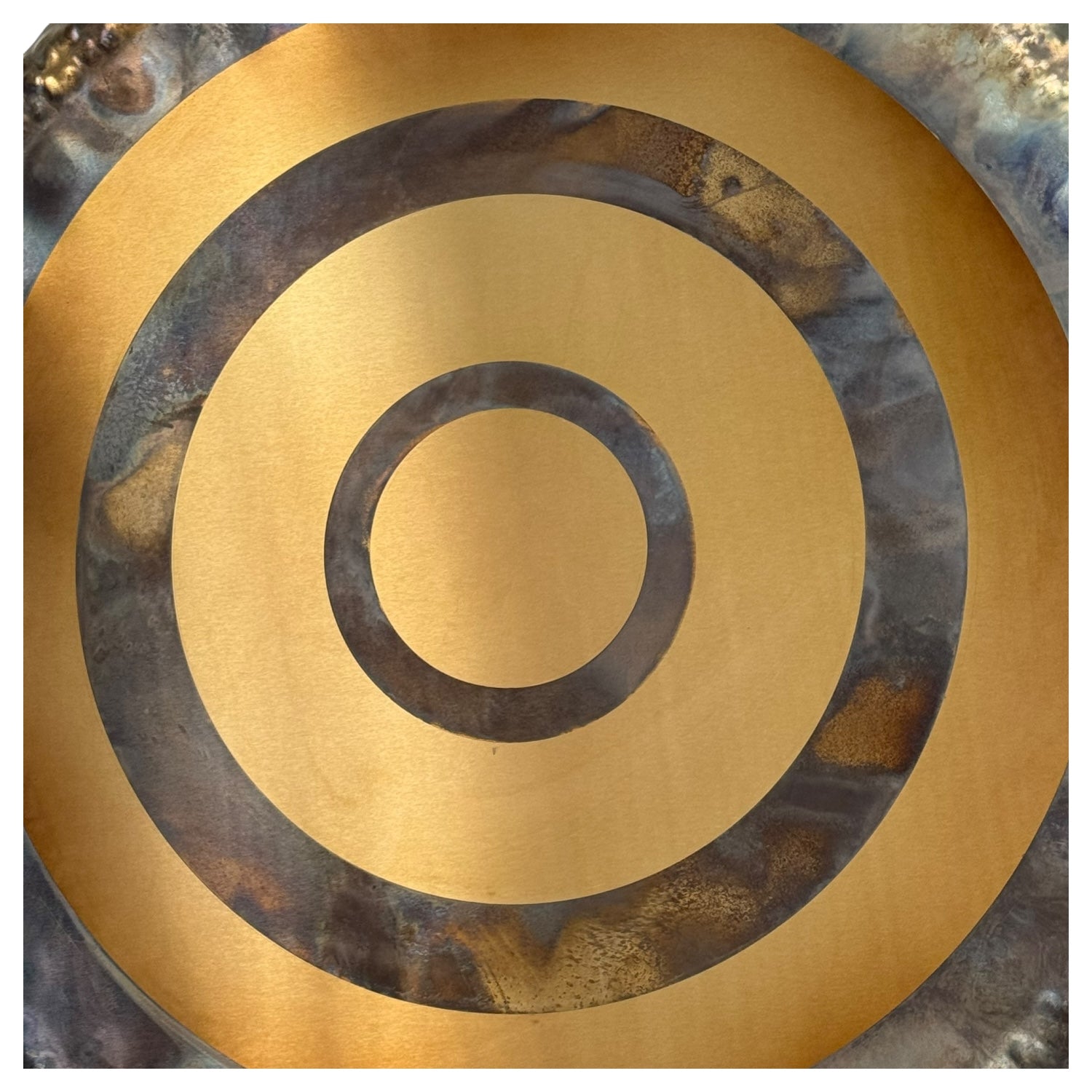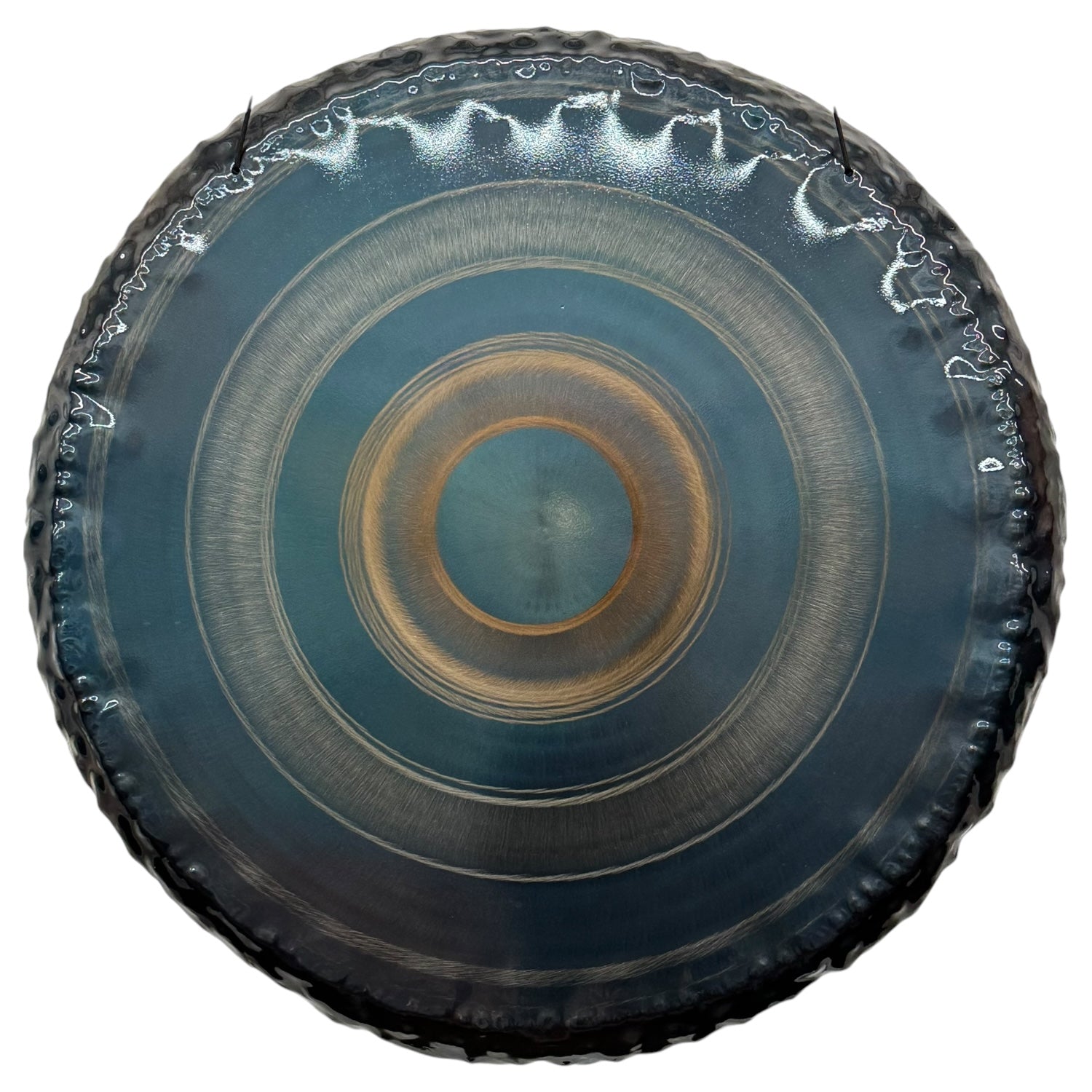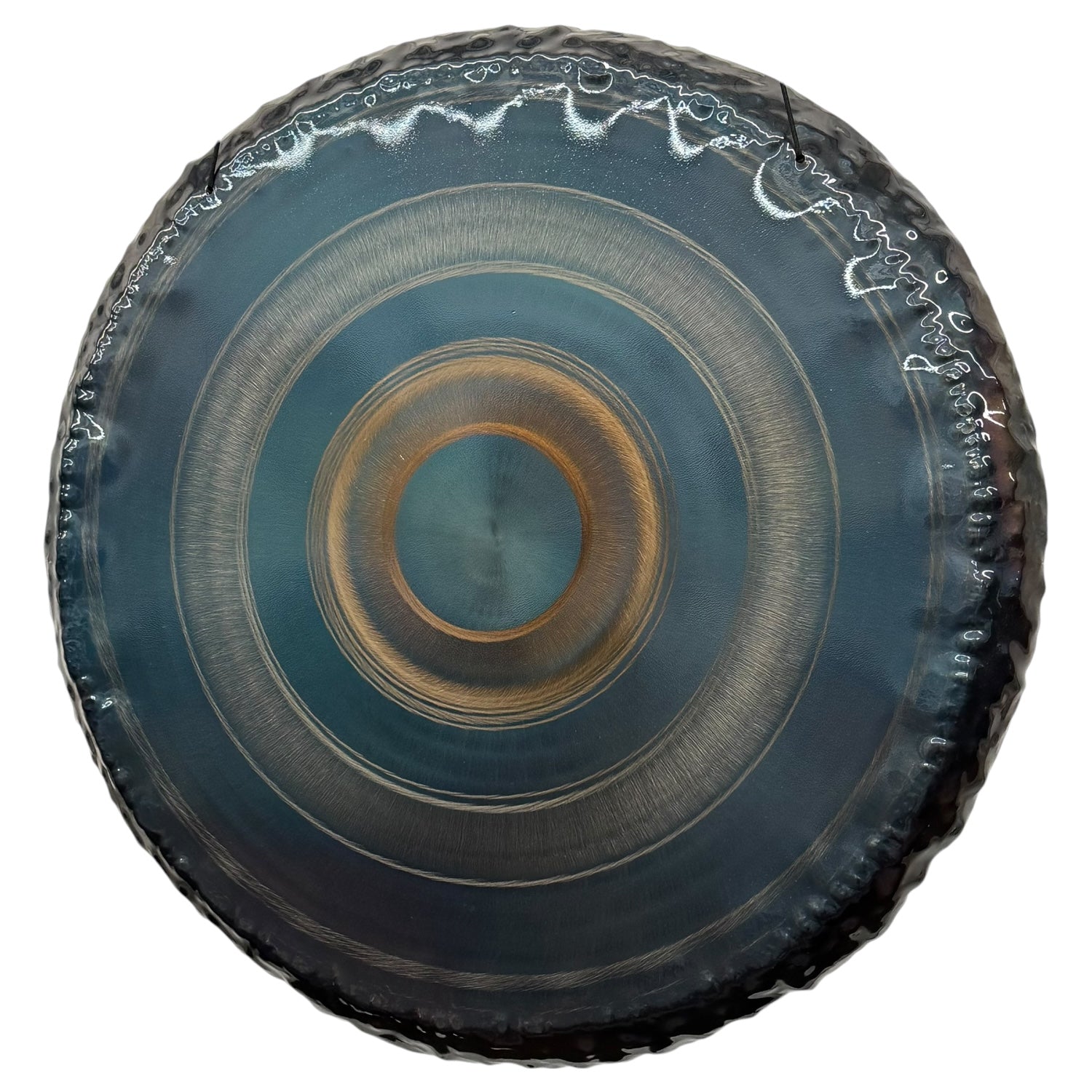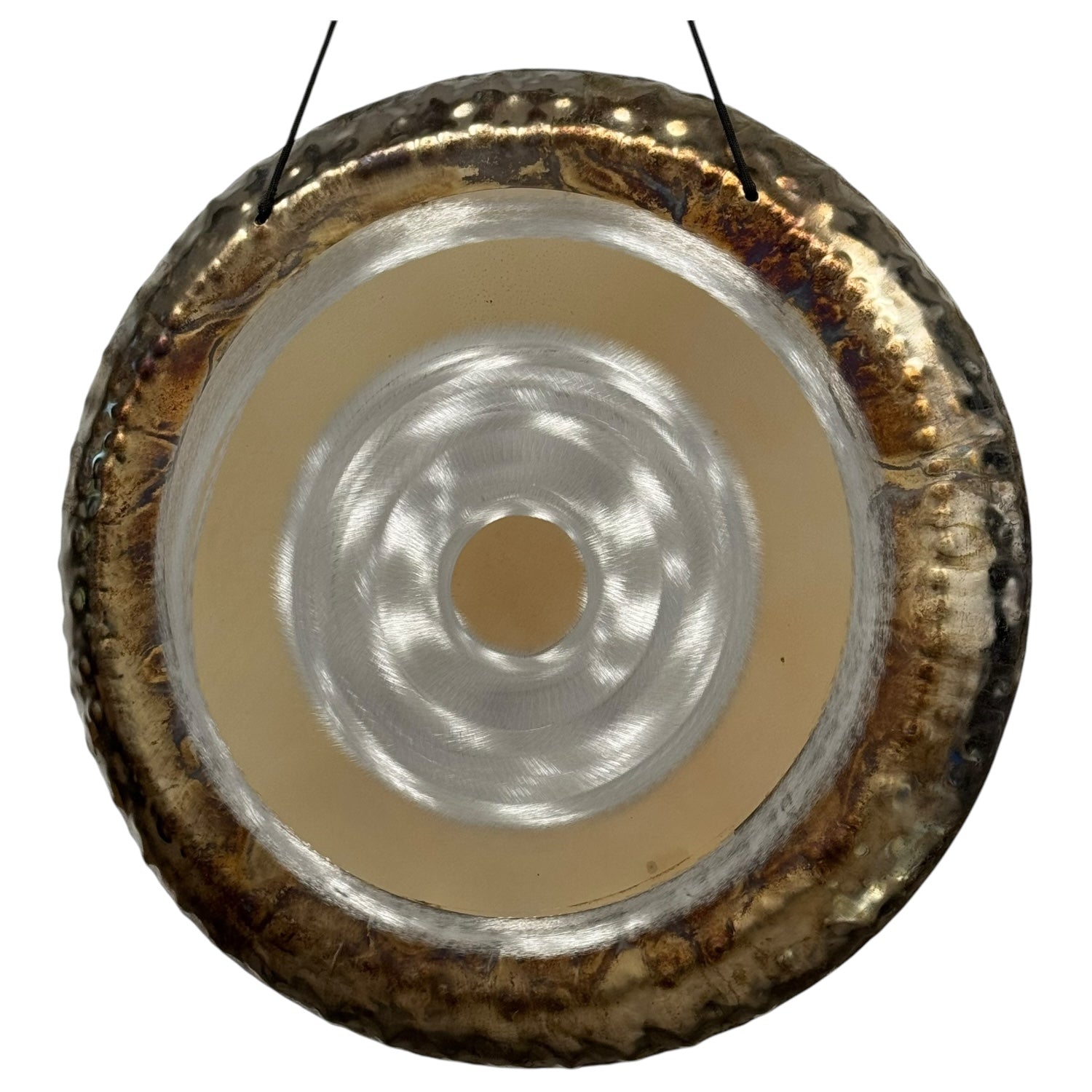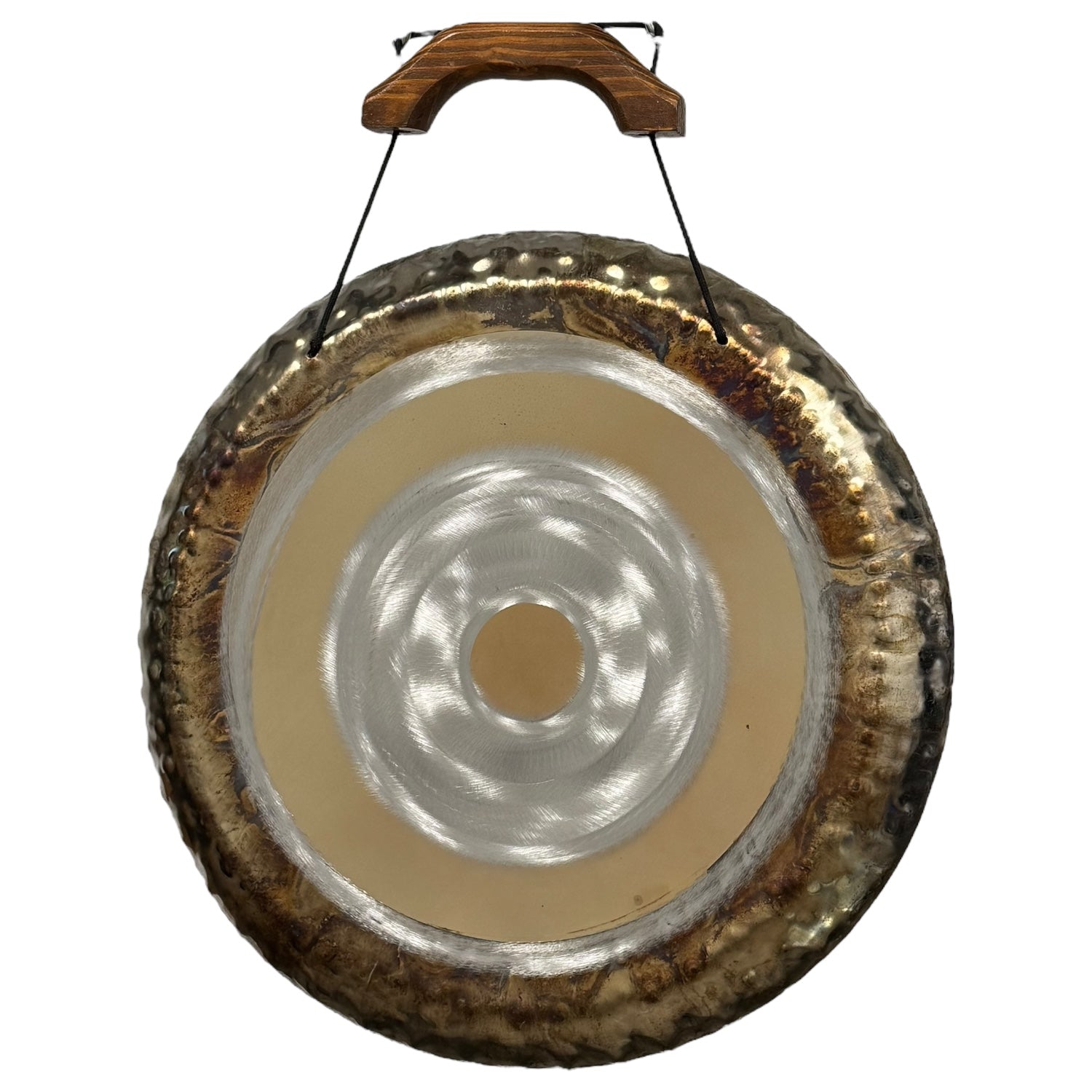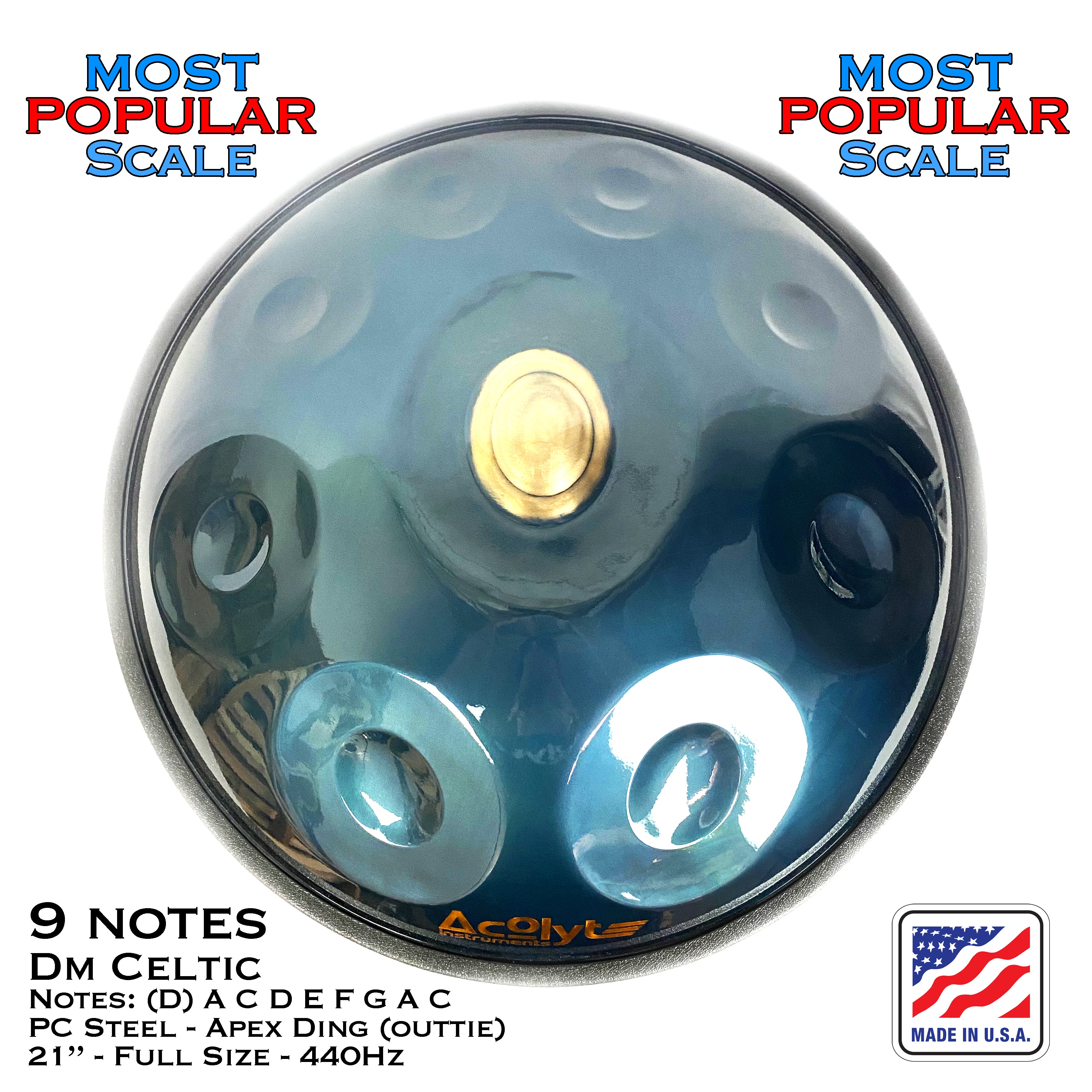
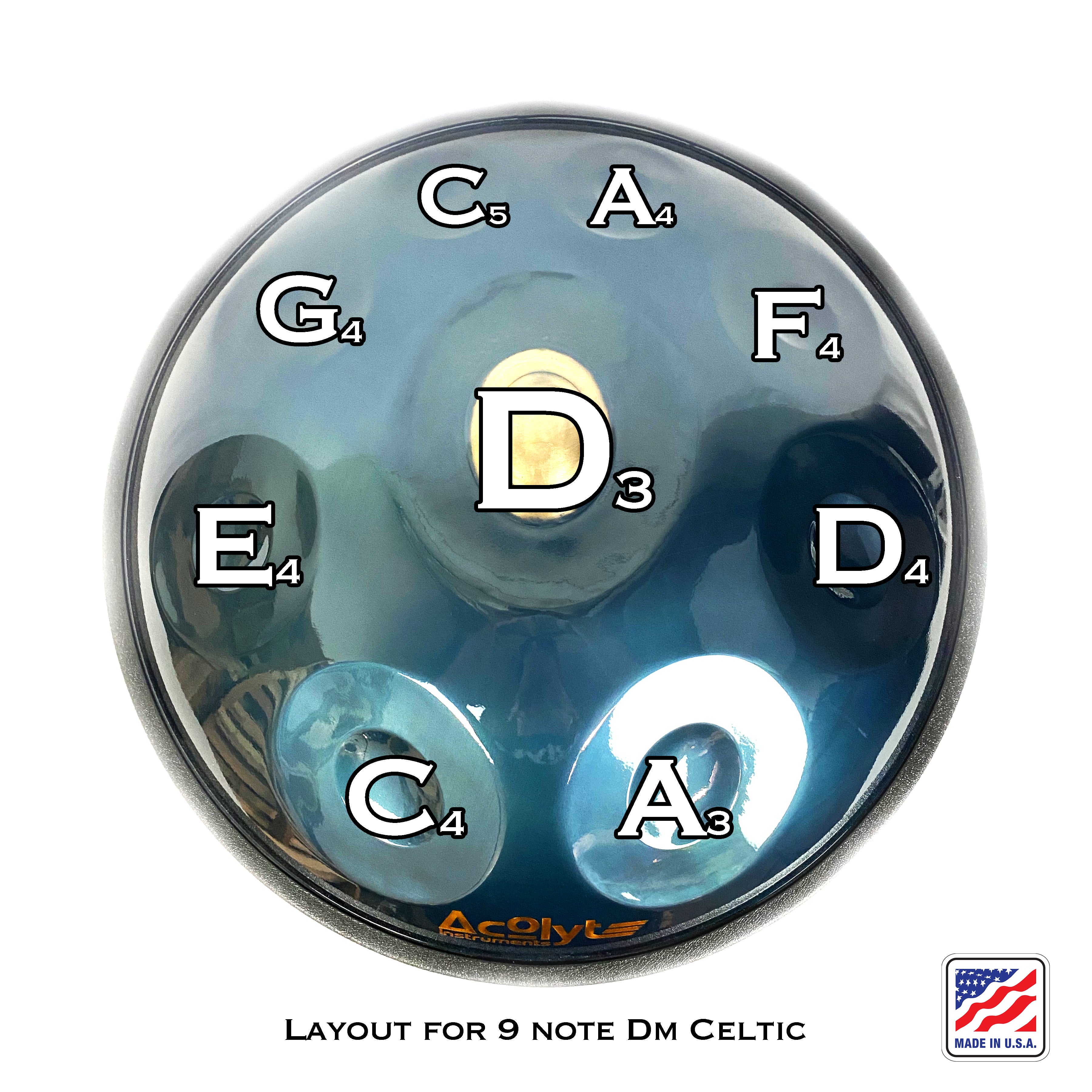
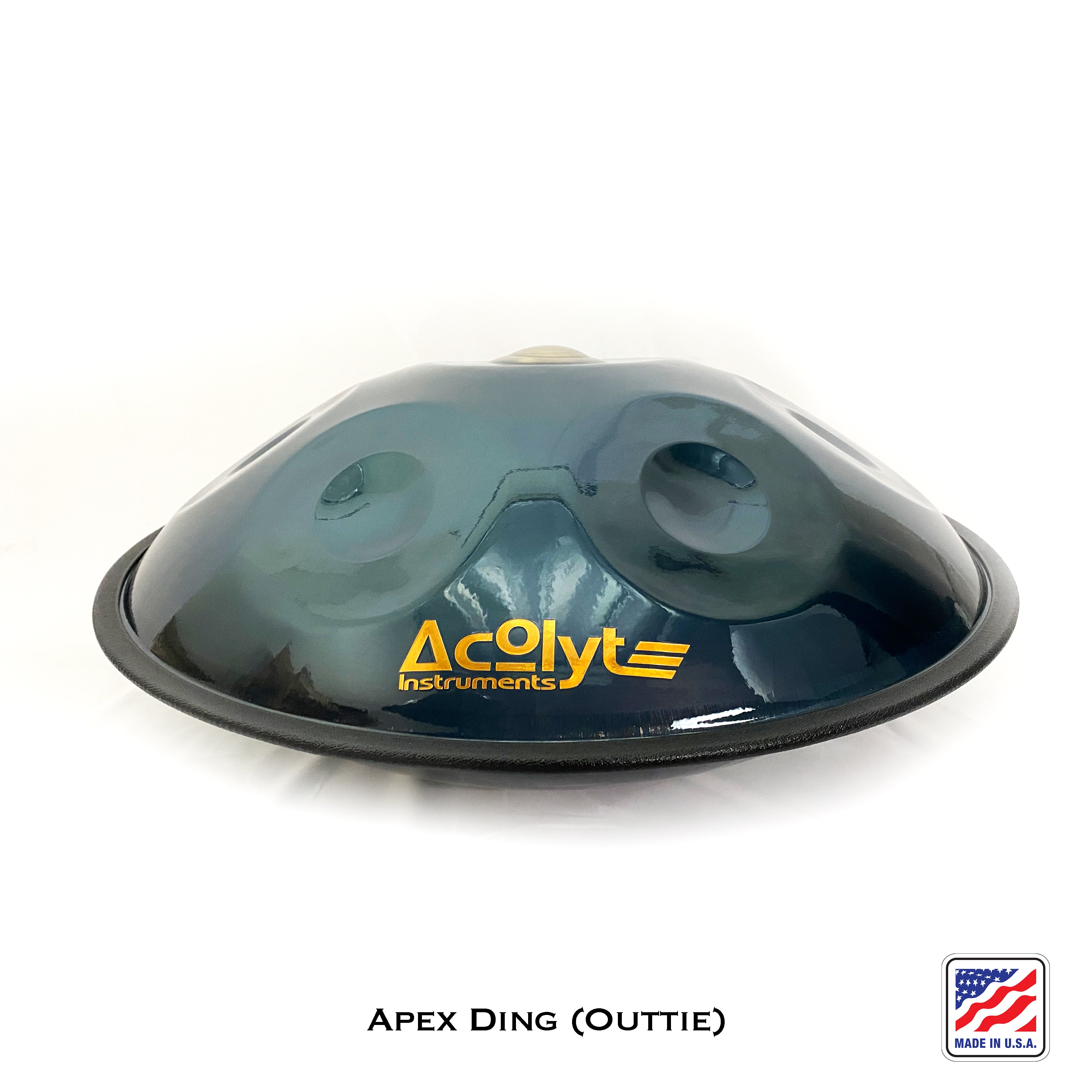
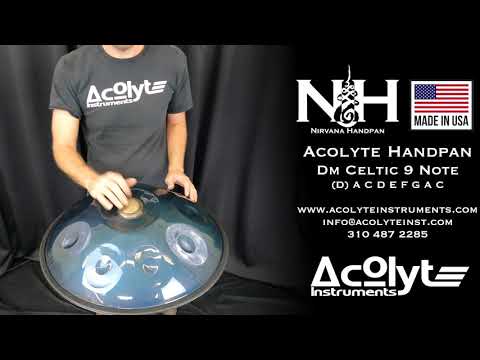
(D) A C D E F G A C
- Full Size – 21″
- Material : PC Steel
- Low maintenance – unlike 99% of other Handpans on the market, our PC steel never needs to be Lubricated
- Tuned to 440hz Standard
- All instruments come with a microfiber cloth and care guide
- Made in the USA in our workshop in Glendale
- Beautiful embroidered custom bags are available
Stainless Steel Handpans
PC Steel Handpans
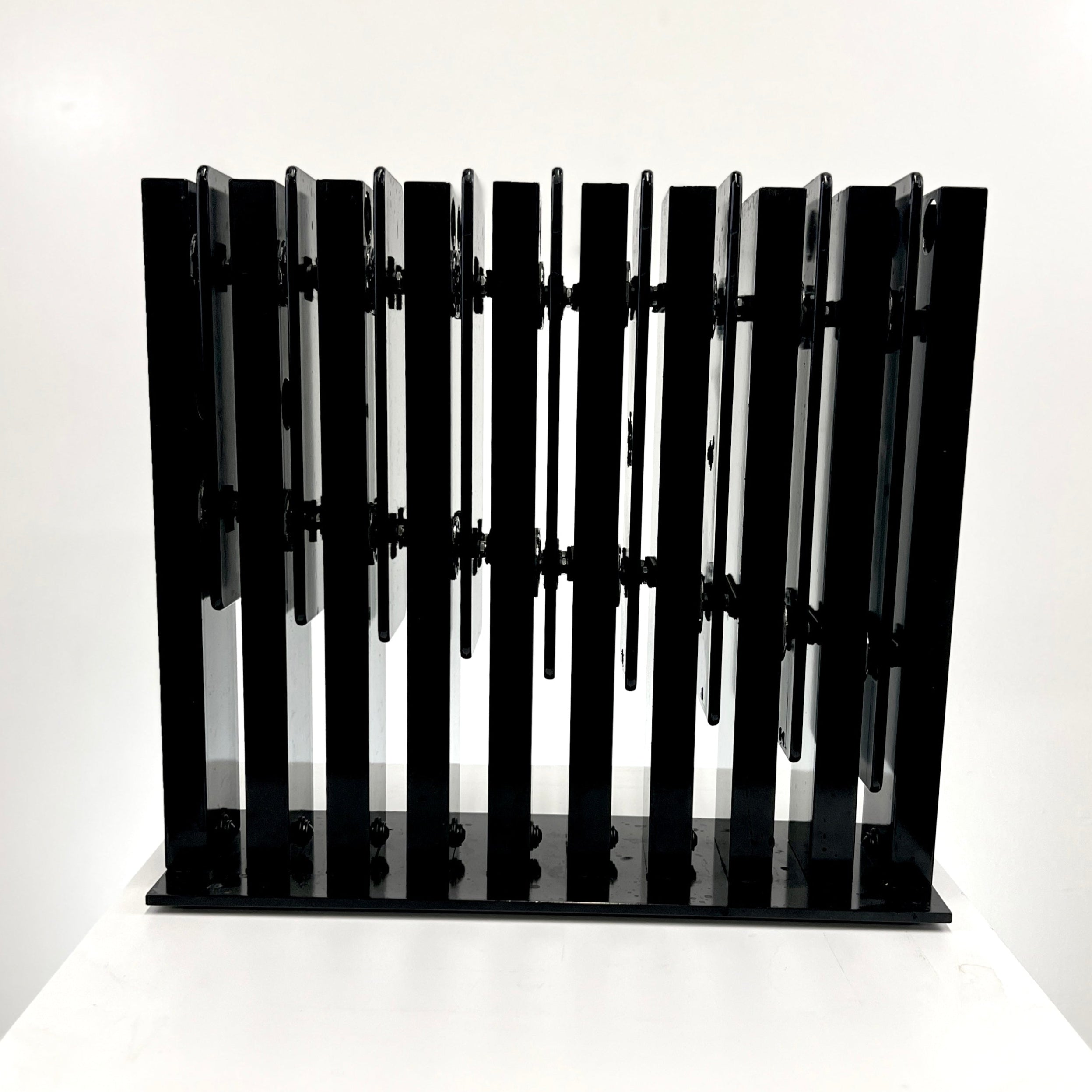
Introducing the SonoLith by Acolyte Instruments, a revolutionary, tactile, sonic experience invented by Chris Andersen (2024). The SonoLith is our innovative interpretation of a lithophone.
The lithophone is a historic instrument made out of stone, traditionally struck percussively, or sometimes rubbed to produce various frequencies (singing stones or klangstein).
The SonoLith differs from a traditional lithophone in a handful of ways. For one, the SonoLith is made completely from aluminum. Another, and perhaps the most important difference, is our ability to tune the SonoLith with impeccable accuracy. This enables us to create sculptures with a wide variety of scales, frequencies and tunings. Another very important difference is that each frequency produced by plates has its' own dedicated resonation chamber, enabling maximum volume resonance and sustain.
More InfoNewest Listings
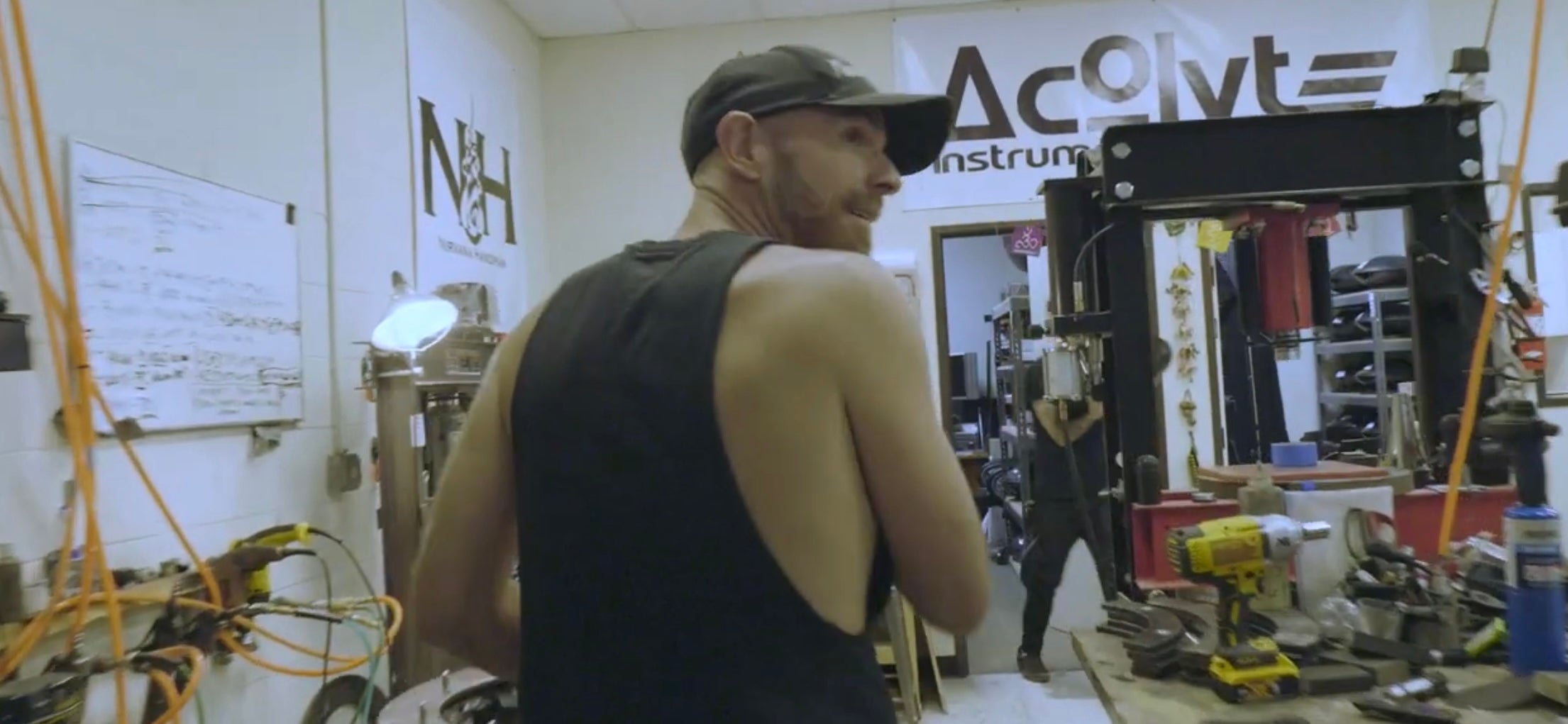
The Handpan Revolution - Our Story
FAQ
Proper Handpan Care
Rust
For handpans made of Raw steel, or Stainless steel, you will have to lubricate regularly or your instrument may/will rust. The best lubricant I have found for this is FrogLube liquid. I HIGHLY recommend you get a bottle of this as it will last you a while and is great stuff – just about 6 drops on each side will do the trick, then gently massage the lube into the steel – NOT TOO HARD – make sure you have completely coated the instrument. I suggest you do this at minimum once a month! if you are playing often or every day you may want to do this 2 times a month or even once a week as salts and oils on our hands can accelerate rusting. ALSO if you live in a humid area or by the beach you may also want to regularly froglube your pan. If your pan is made of Raw steel you must be extra vigilant about lubricating your instrument.
If your handpan is made of PC Steel – you NEVER need to lubricate your instrument, so don’t do it.
KEEP IT OUT OF THE SUN!!!!
Yes of course you can play it outside in the daylight hours however try to keep it out of direct sunlight as the sun will heat the steel and will cause it to go out of tune (possibly permanently until it is retuned). Also playing a pan that is extremely hot from the sun isn’t particularly comfortable on your hands (it can get as hot as a frying pan) – so keep out of direct sunlight as much as possible.
Light Playing
Handpans are meant to be played lightly. Hard strikes (even from your fingers) can cause a tonefield to go out of tune; Therefore NEVER use anything other than your hands, or hands with soft gloves on, to play the pan.
Do not paint your handpan
I know it may be tempting (and you can if you really want to) but adding anything onto your instrument will absolutely alter its sound, and most likely not for the better.
DON’T DROP IT
A pan that takes a bad fall could be the end of it. If you should ever damage your pan in the future send me a video and I will let you know if it can be repaired – SO – keep you pan stored in a safe place not too high up.
Do not store your instrument in a bag or case for
extended periods of time (days to weeks)
When traveling either around town or abroad with your instrument it will spend a reasonable amount of time in its dedicated case, however, when not actually traveling with the instrument its best to keep it out of its' case or bag as moister can get trapped in the bag an instigate corrosion. You can also as an additional preventative measure put a silica packet (moister-eater packs) in the bag or case. Just keep in mind that those packs do need to be replaced regularly or they may instigate corrosion if they are moist.
If your instrument is made with PC steel
Take care to not damage the finish otherwise your instrument may be in danger of rusting. For instance we don’t recommend you bring a PC steel instrument to the beach as the sand can scratch the finish.
Tuning
All handpans will eventually go out of tune, just like a piano or a guitar, and need to be retuned. All Nirvana Handpans come with one FREE retune that I recommend customers use between 1-2 years from receiving their instrument. After that retunes cost from 100-200 USD depending on the amount of work that needs to be done. These retunes are based on normal wear and play of the instrument – if the instrument ever is damaged I would have to assess the amount of work that needs to be done in order to determine the cost of the repair. Keep in mind playing too hard WILL send it out of tune faster than soft playing.
And MOST important…
ENJOY IT!!!
Euphonic Array Care
Your Euphonic Array is very simple to care for! Use paper towels and Ammonia-Free Windex ONLY to keep your instrument clean. DO NOT USE ALCOHOL OR ACETONE or you will damage the finish. Using Distiled water for playing will give you the best accoustic results and it won't leave white marks on your playing rods like tap water will.
How long will it take to get my orders?
All orders will ship within 2 - 8 Business days
Do you ship overseas?
Yes, we ship all over the world. Shipping costs will apply, and will be added at checkout.
For customers outside of the U.S., please be aware that you may be subject to import/VAT fees. These fees are the sole responsibility of the BUYER
Return/Exchange Policy
All Sales are Final - we do not accept returns
If an instrument is damaged during delivery we require documentation (photos and video). After receipt of the damaged instrument we will replace at no cost to customer and refund any shipping cost customer incurred for the exchange.
Aesthetics and finish disclaimer:
Due to the handmade nature of all of our instruments as well as various other factors, your instrument may vary slightly in color and markings from some of the instruments depicted. Your instrument may have hammer marks, small scuffs, or birthmarks as we call them. These are all normal traits of a handmade instrument. Blemishes will not affect the sound or performance of your instrument, and depending on the material of your instrument, it will age/discolor overtime no matter how well you care for it; this aging is normal and will not affect its performance.

